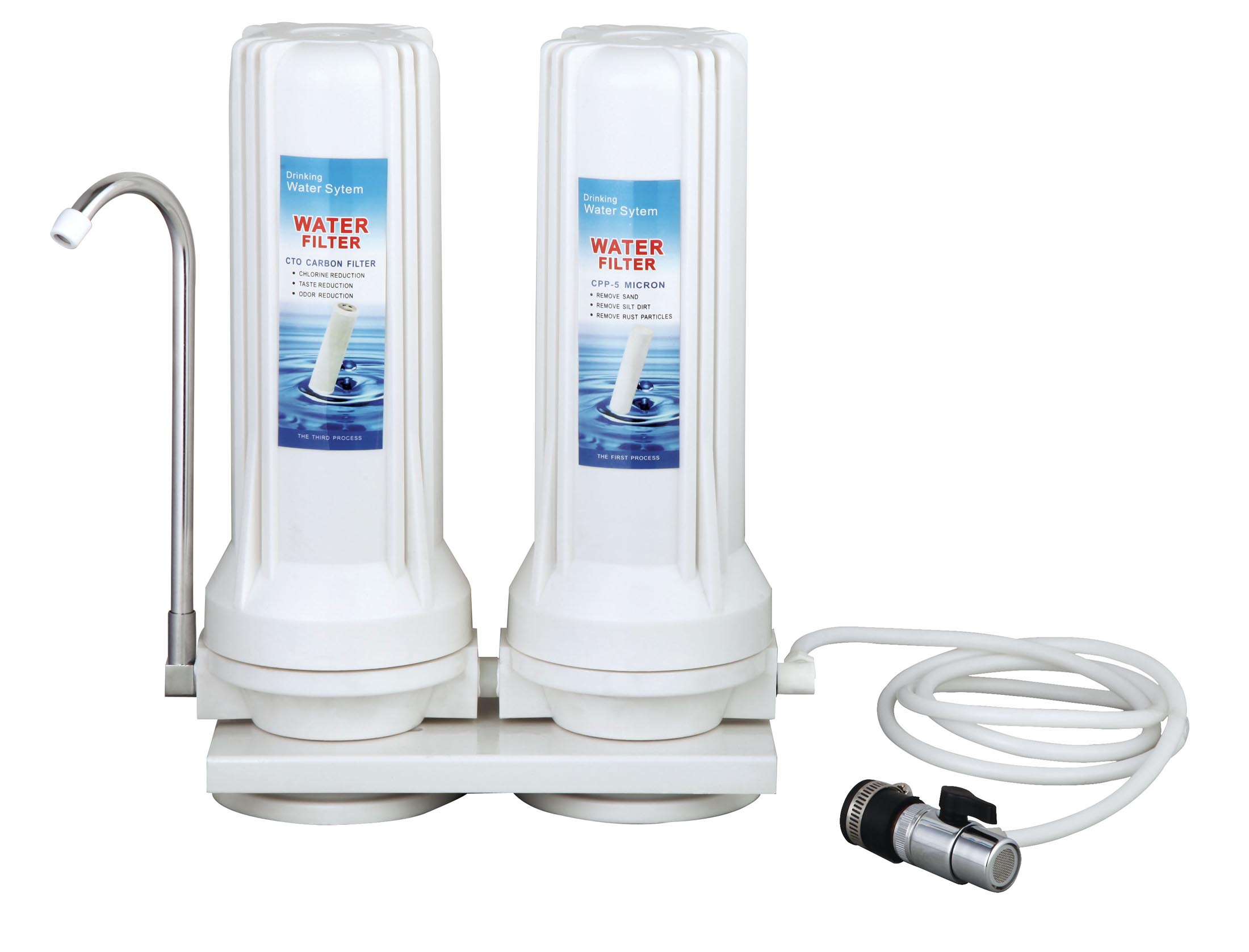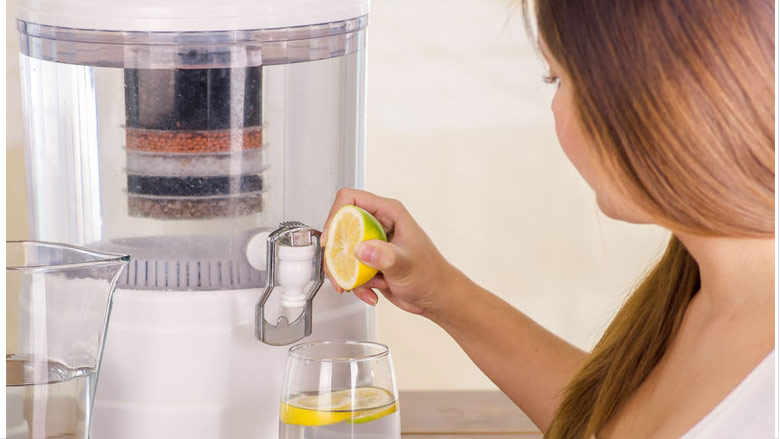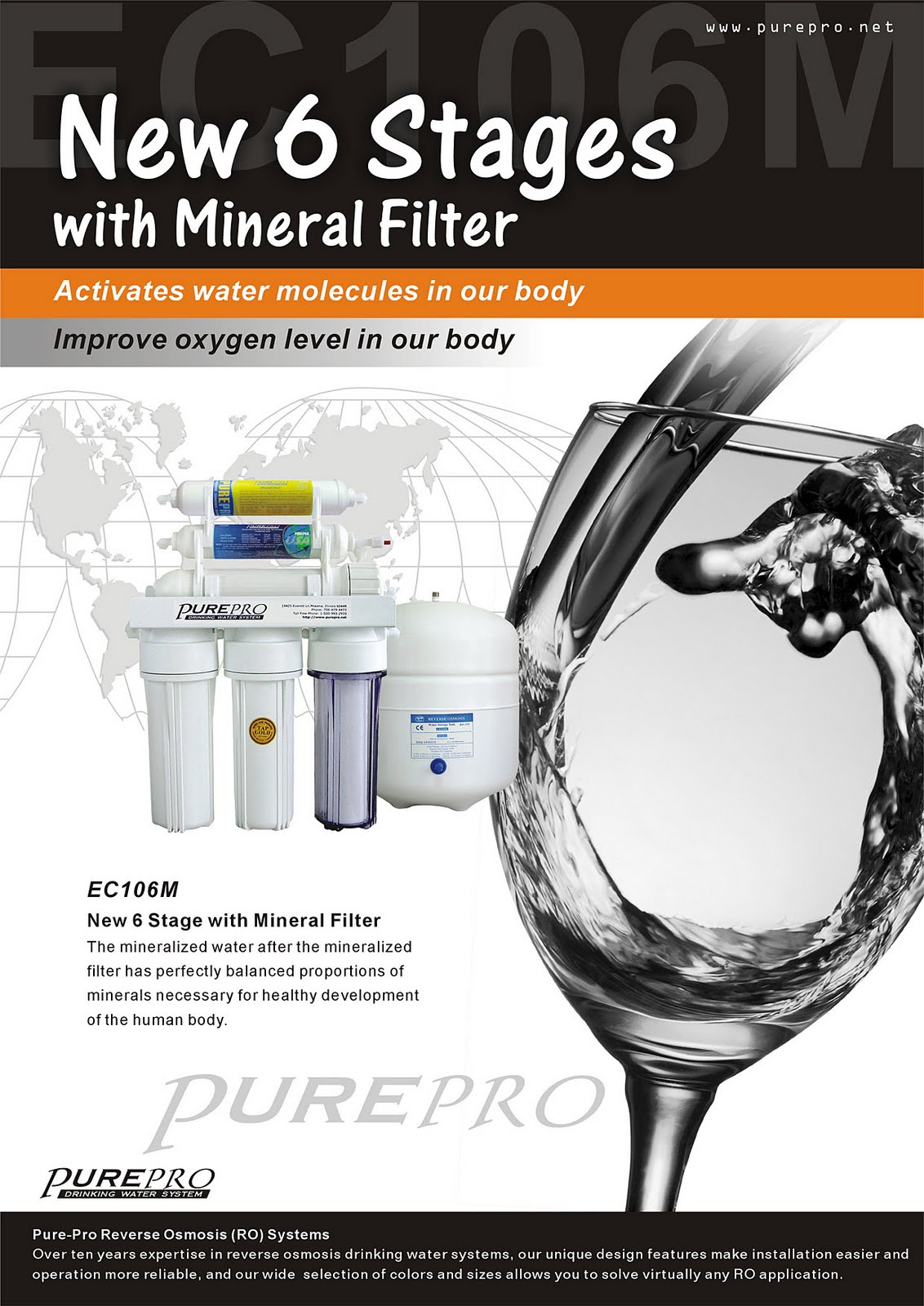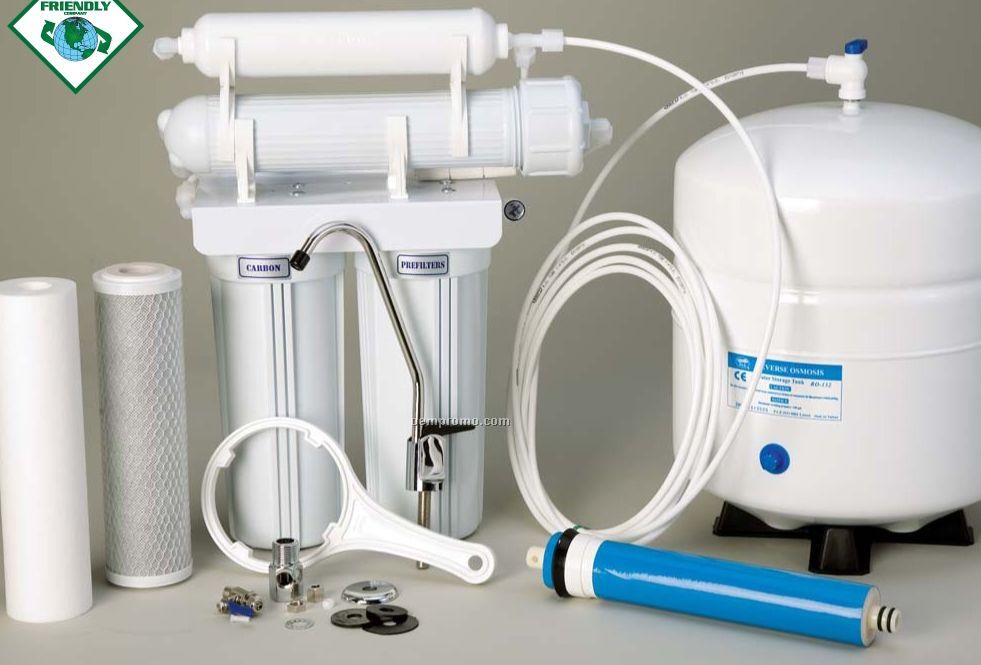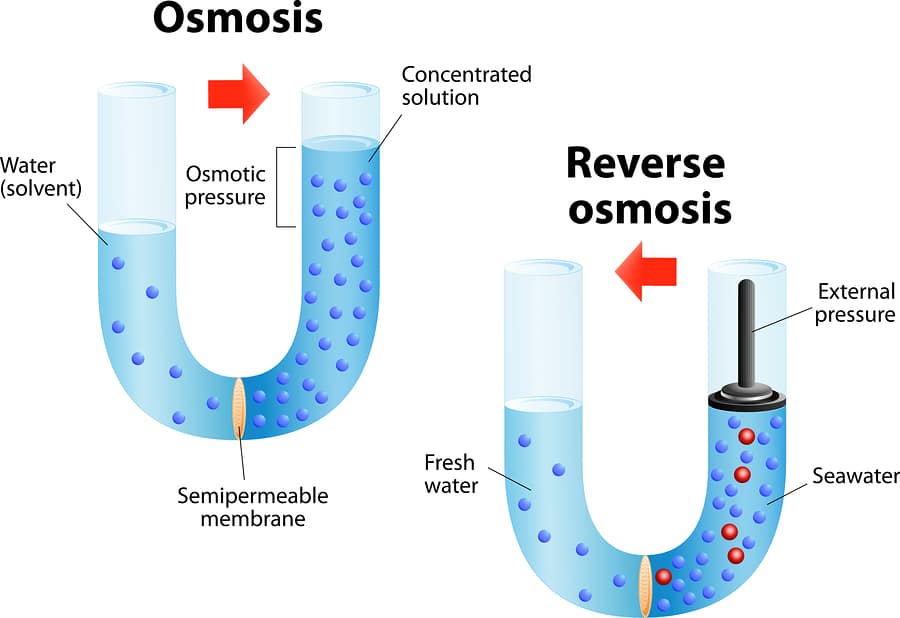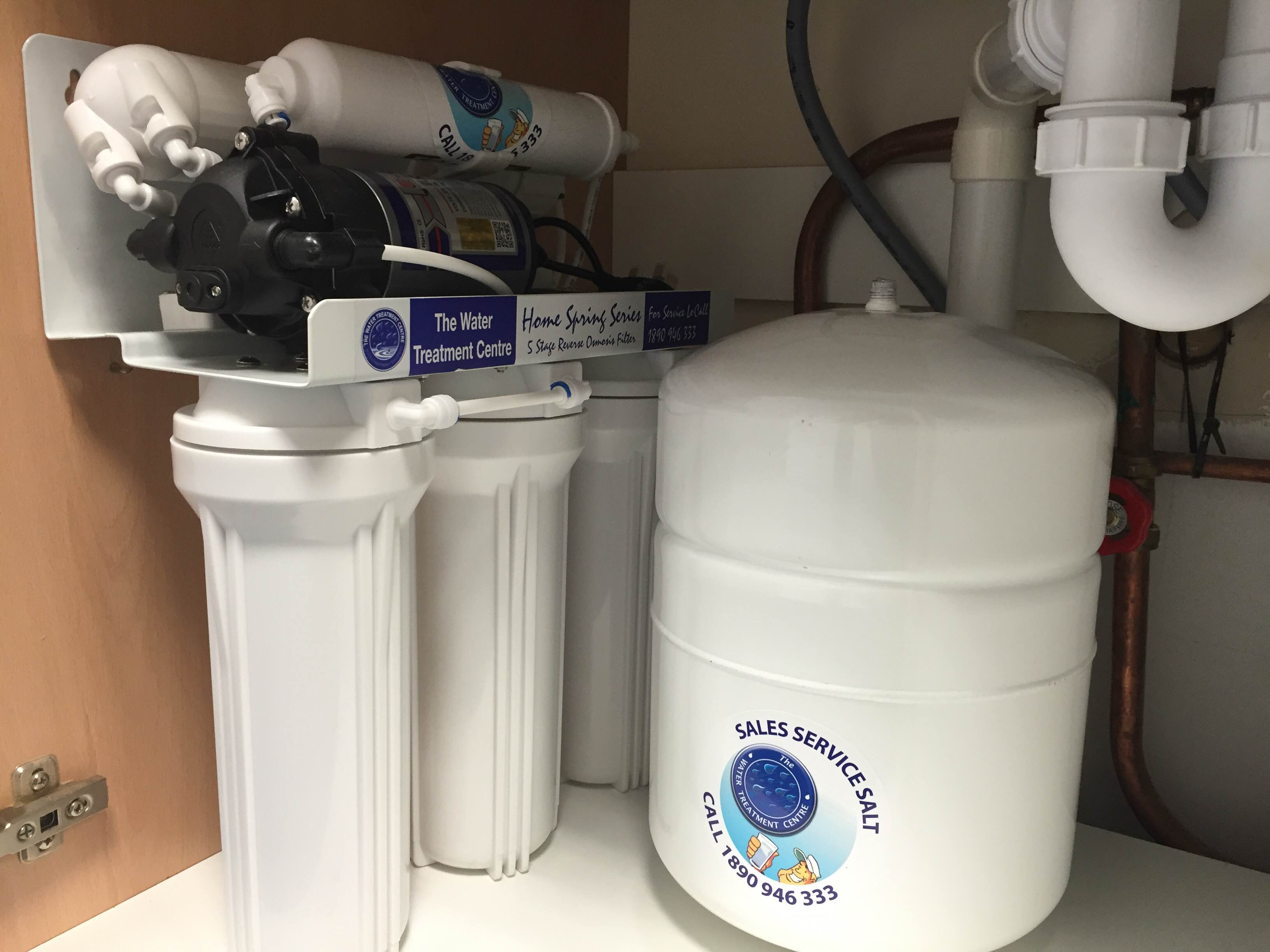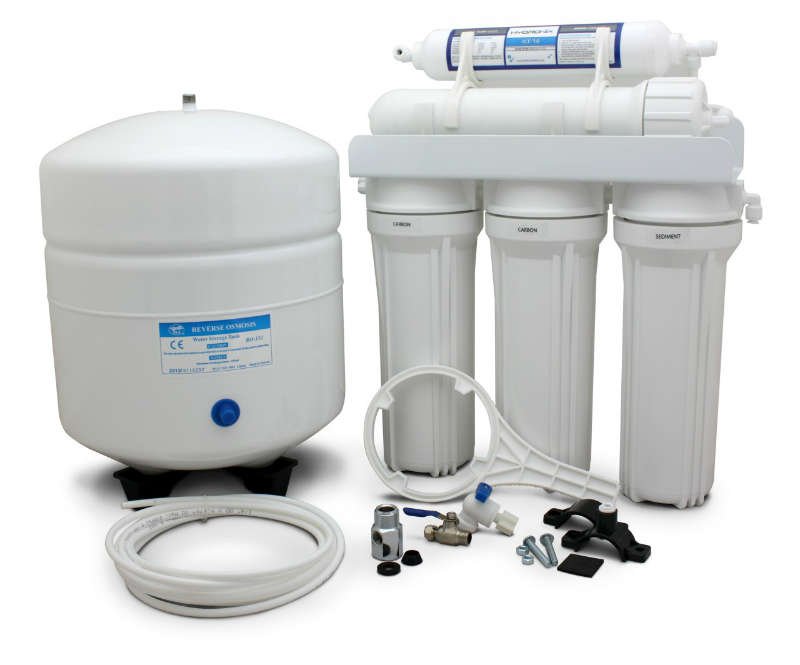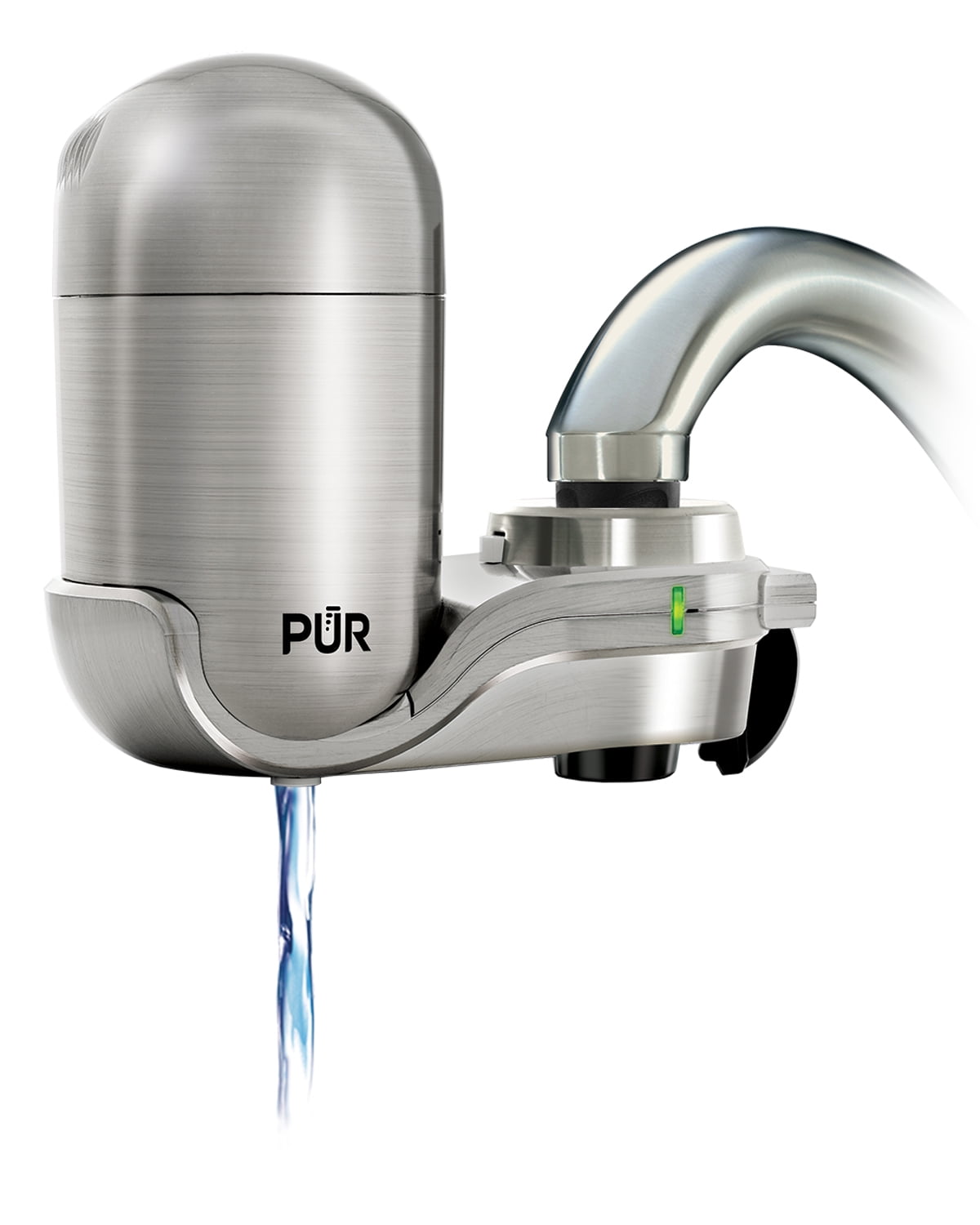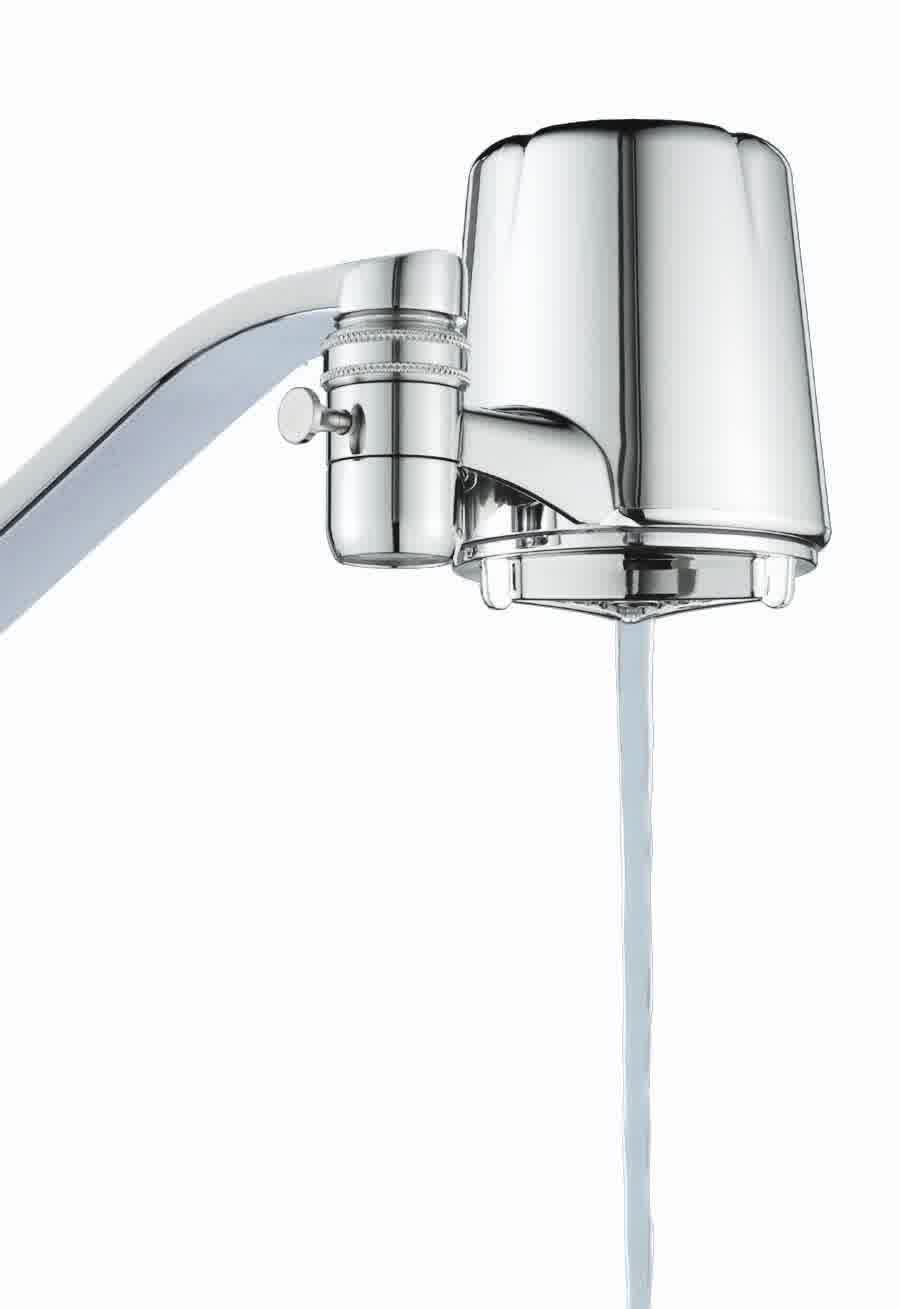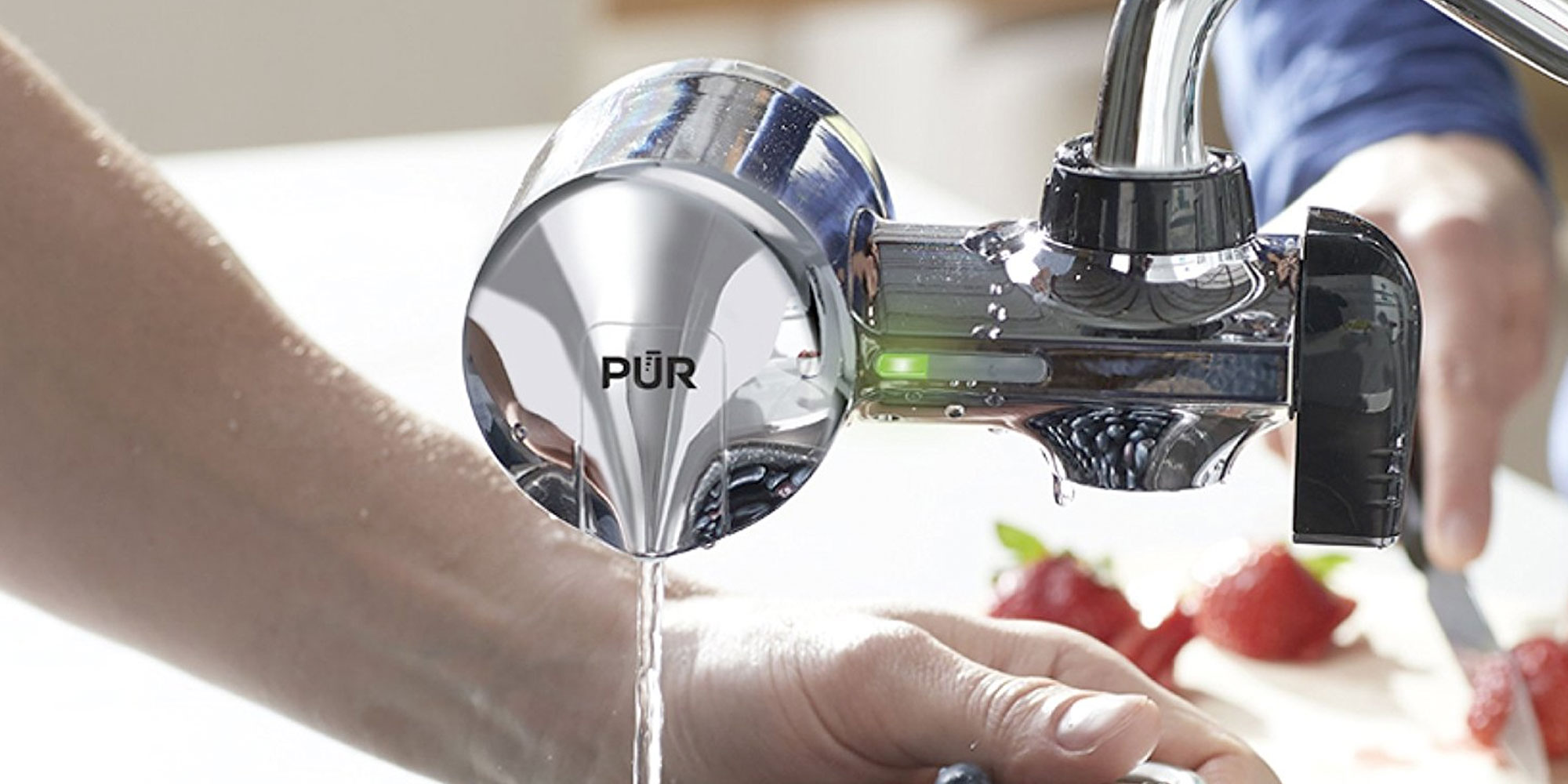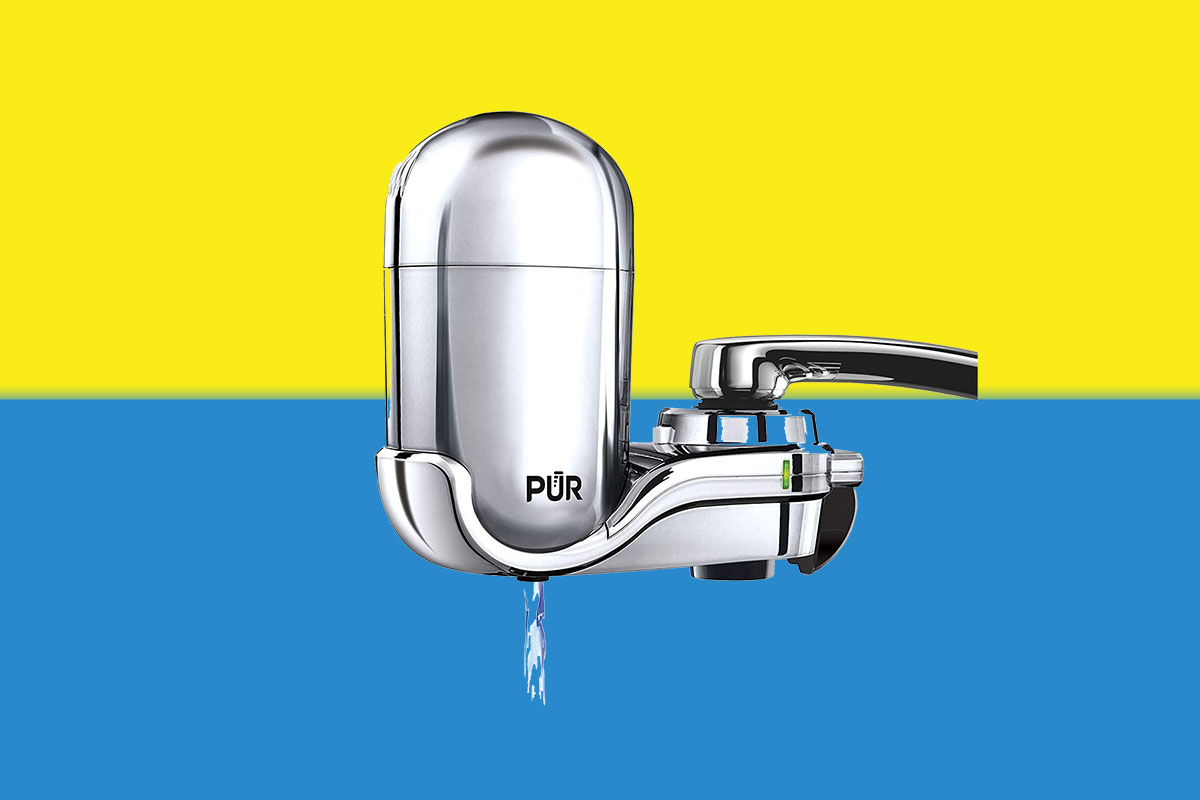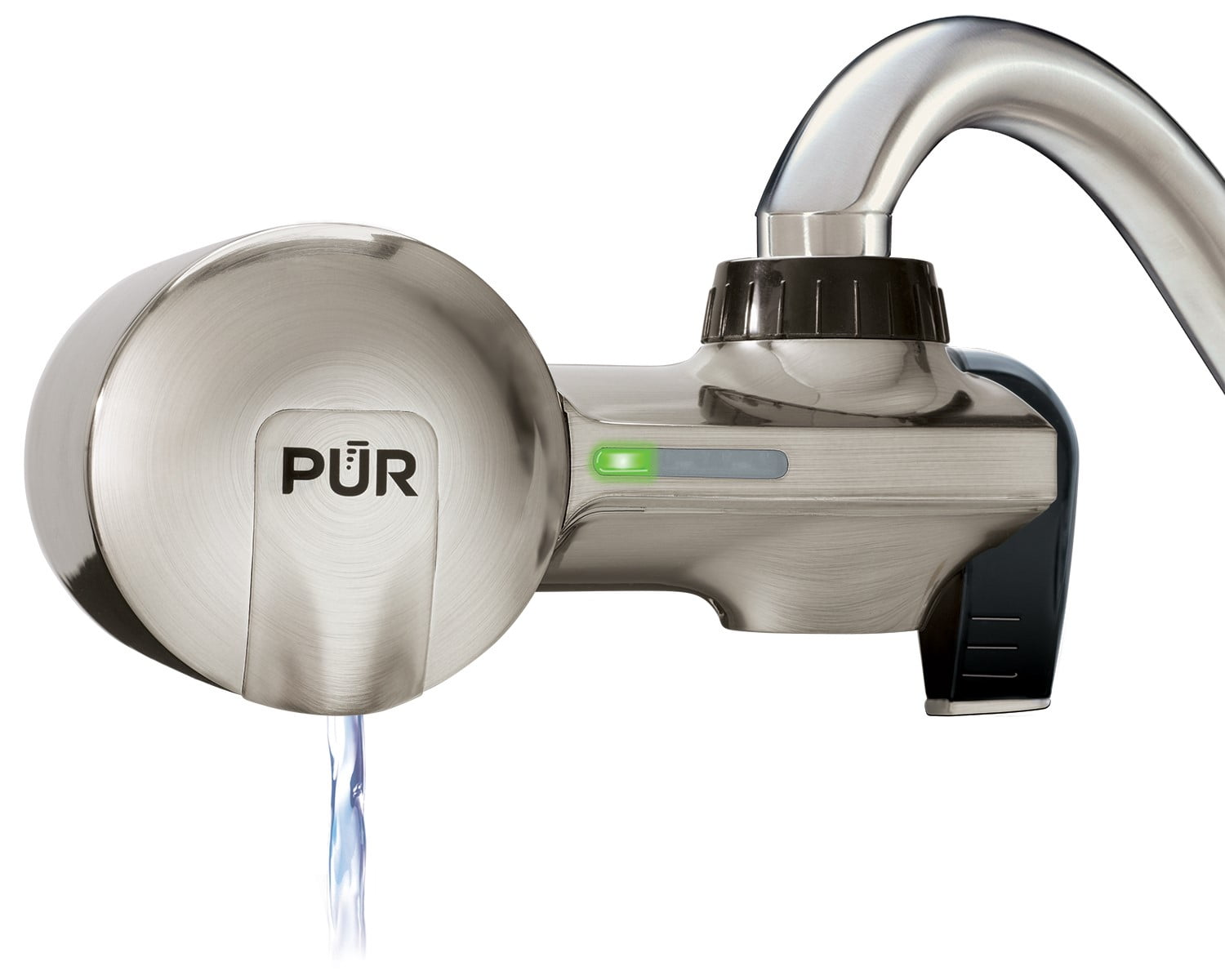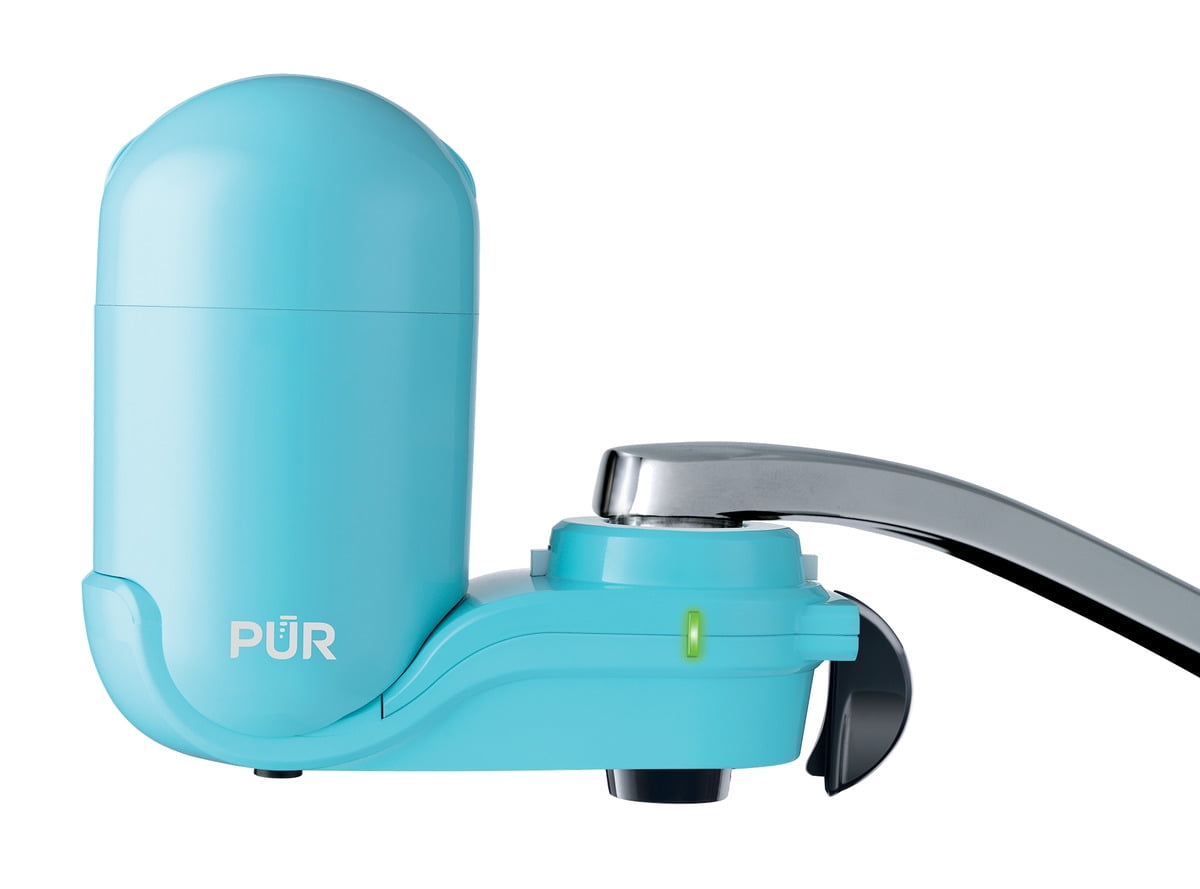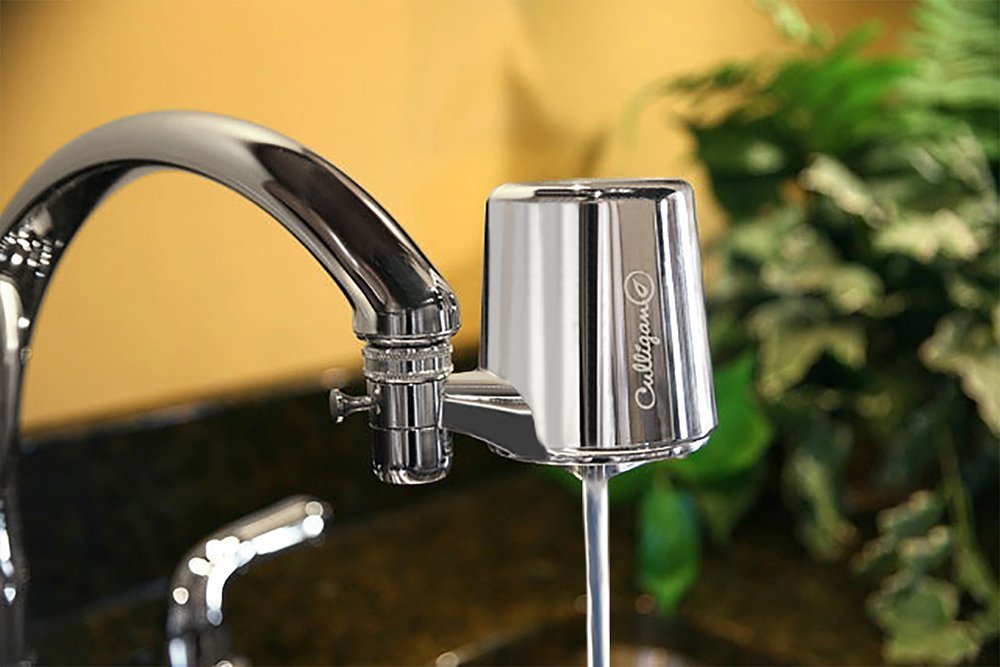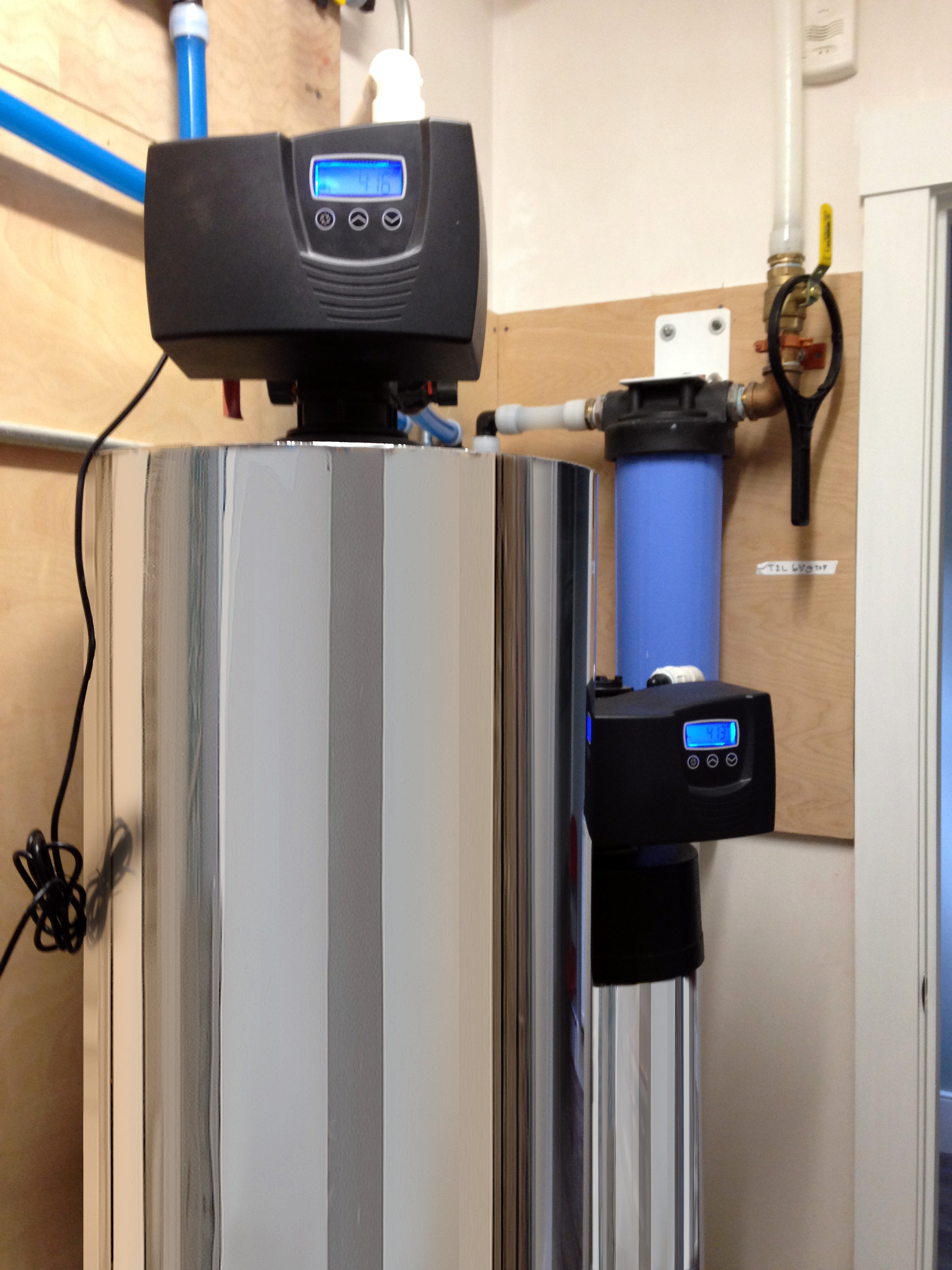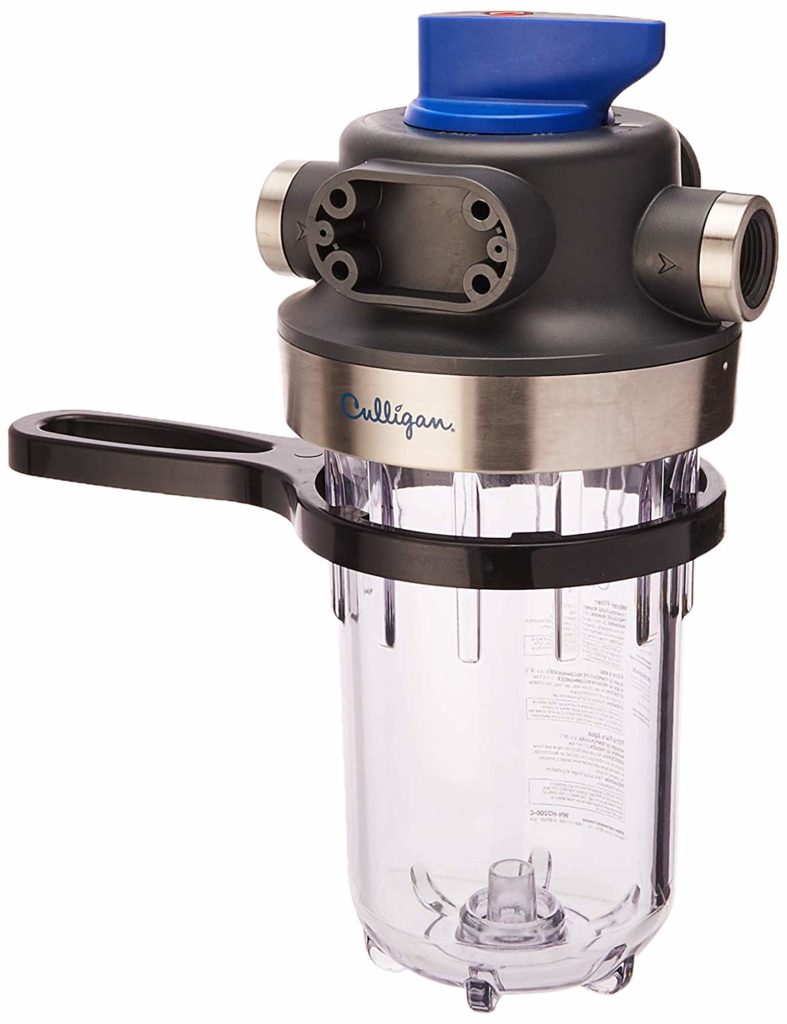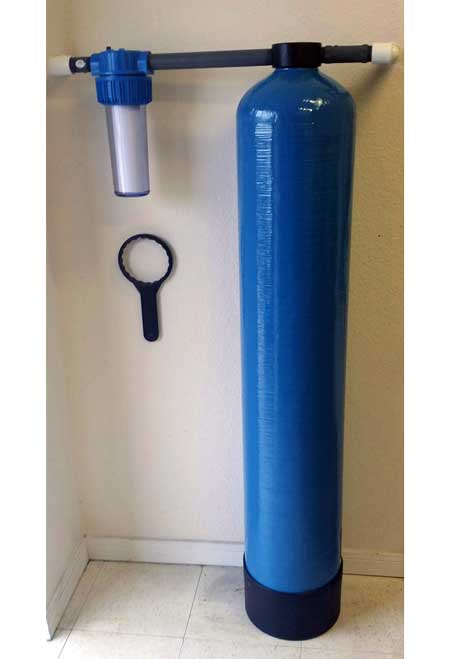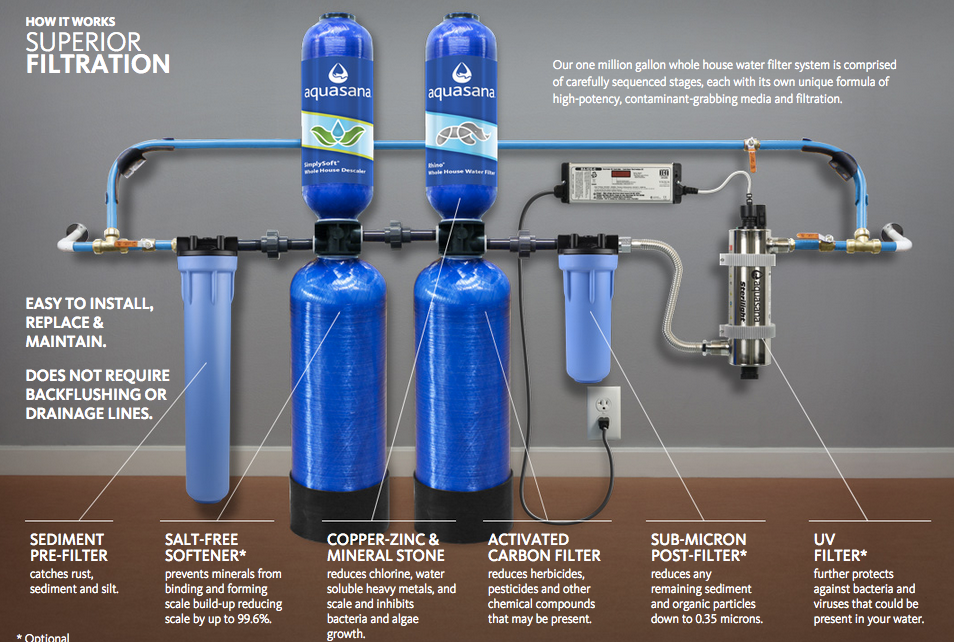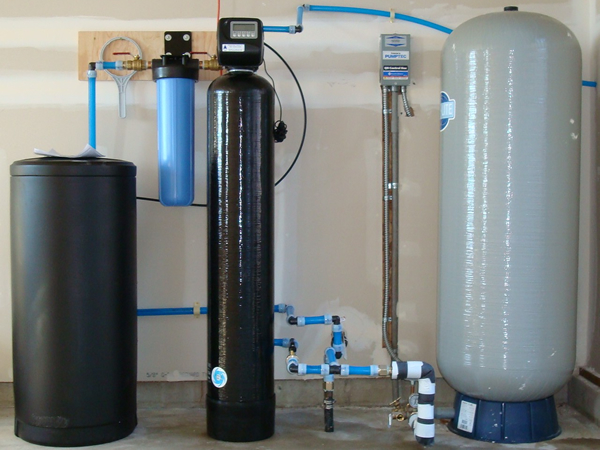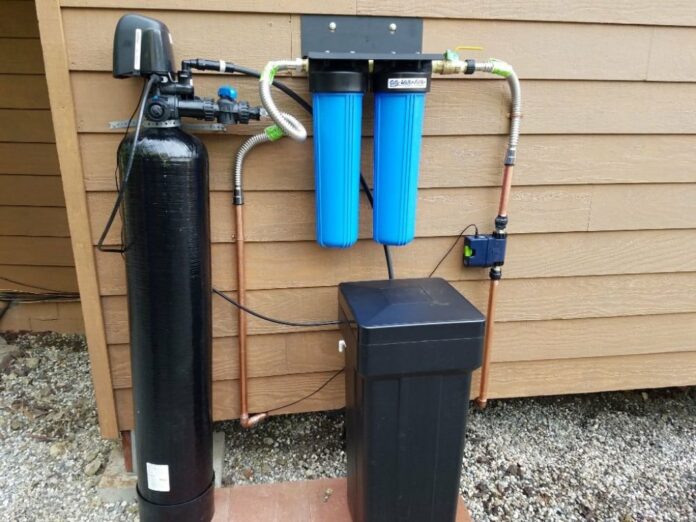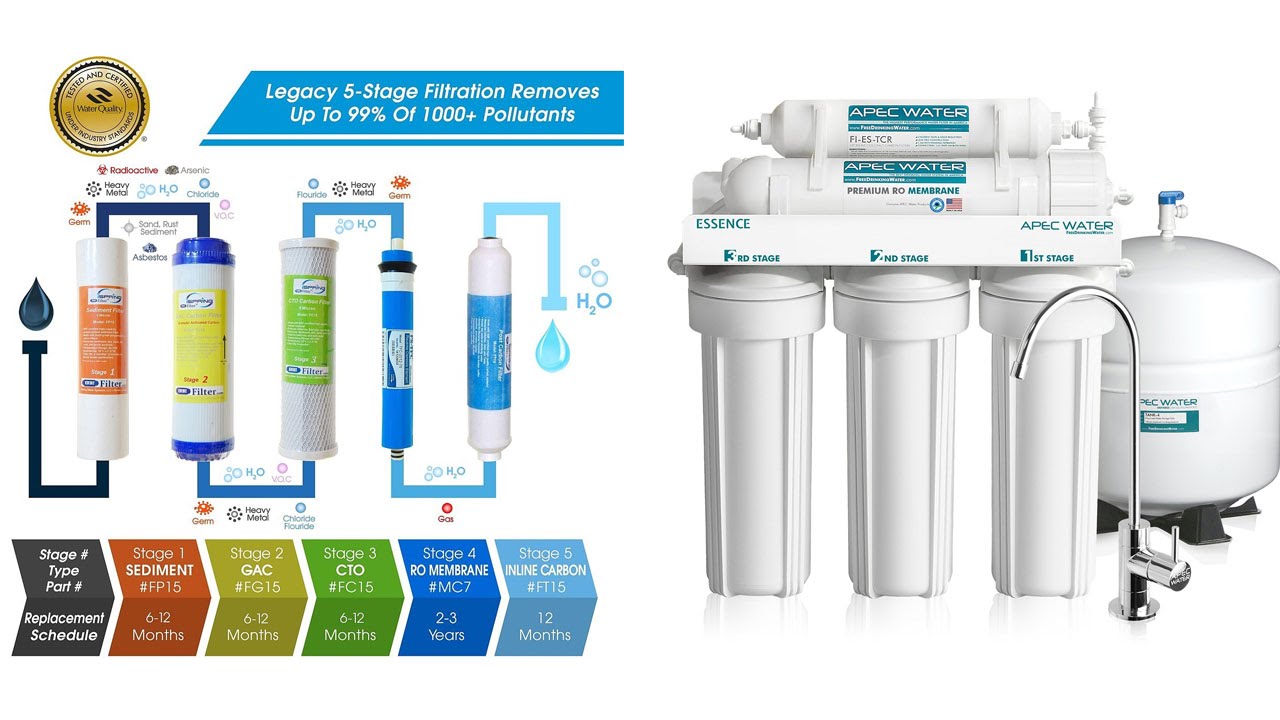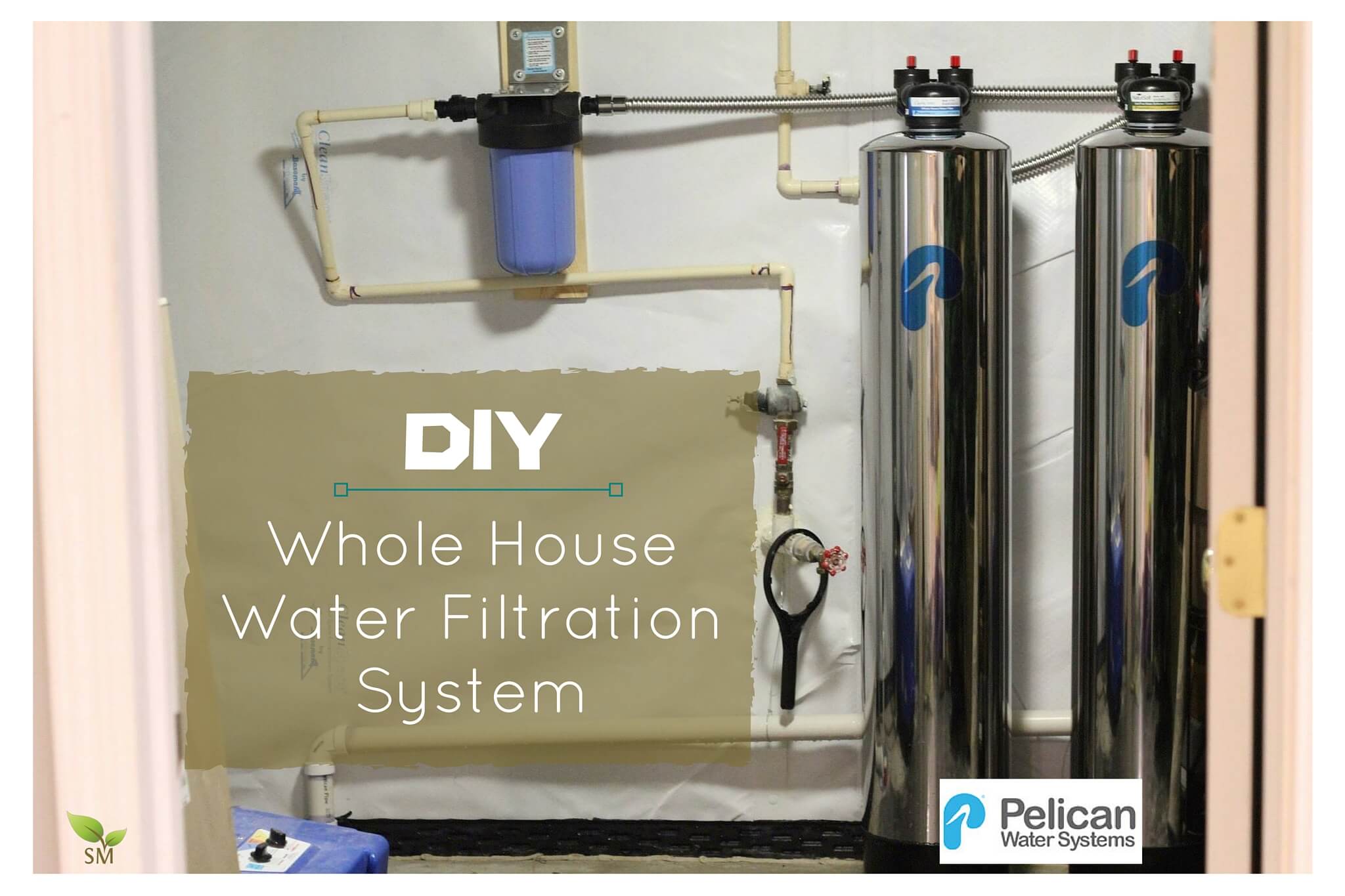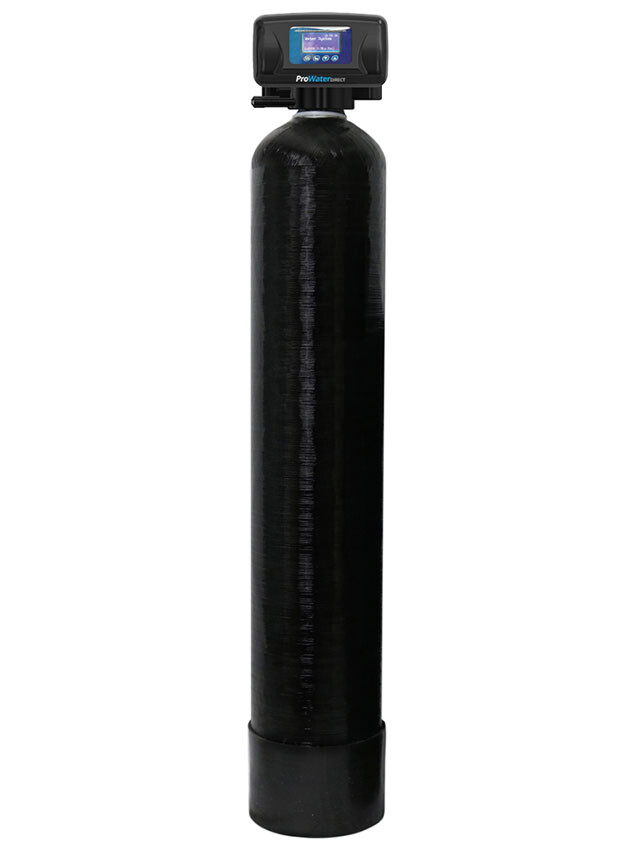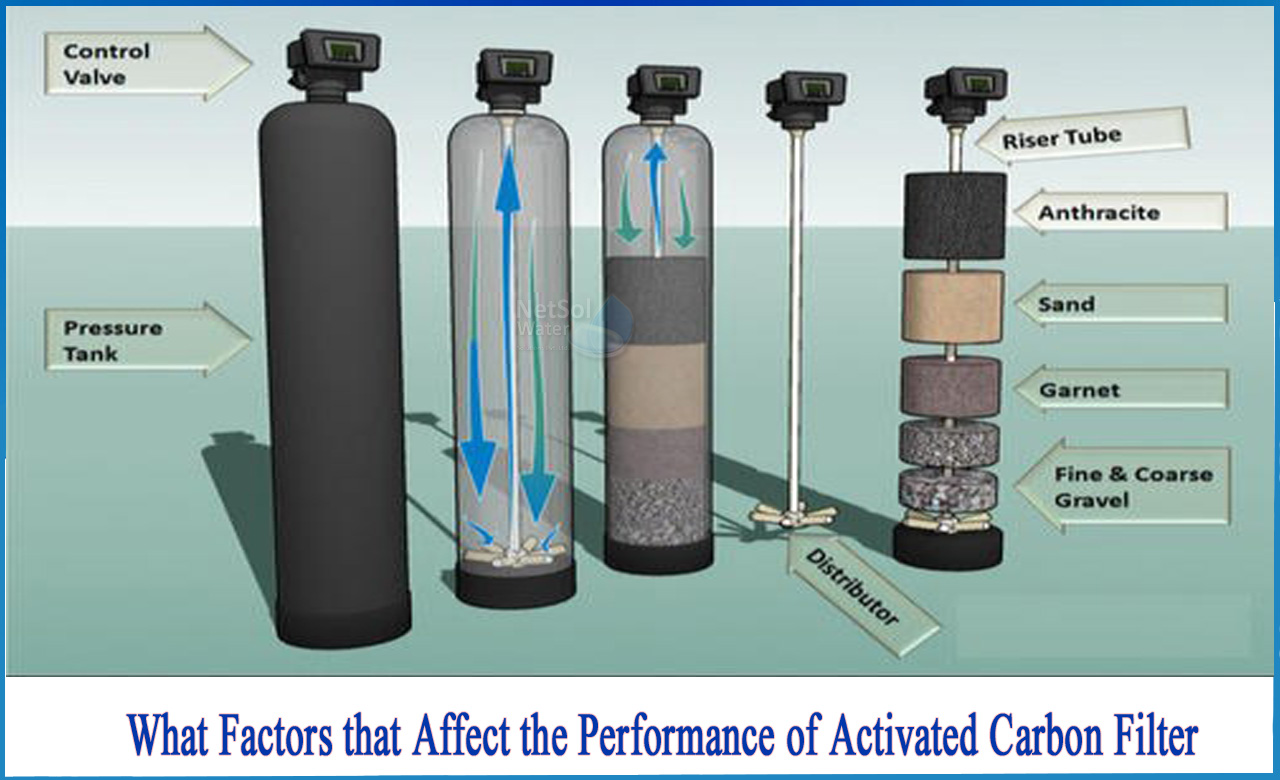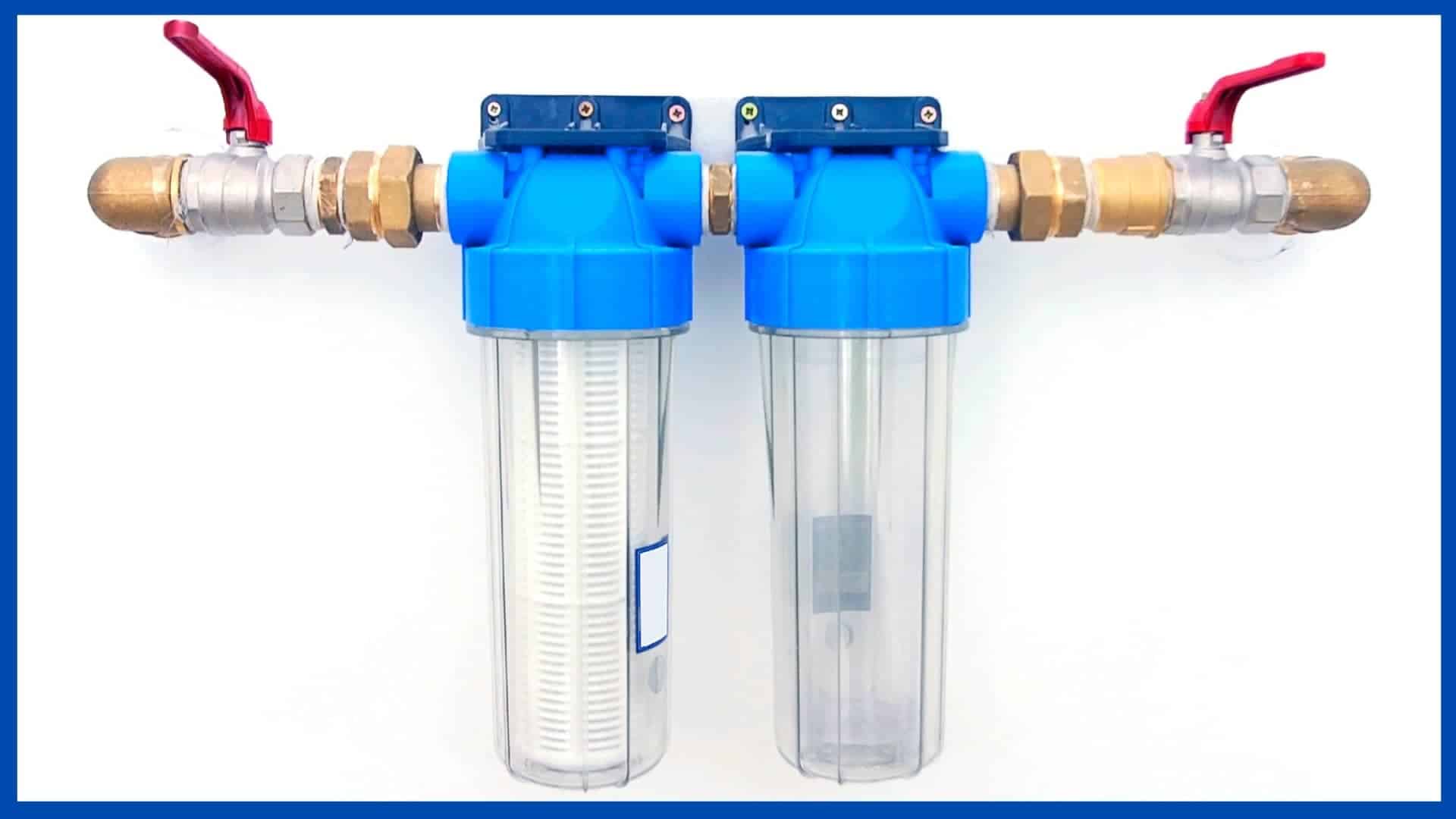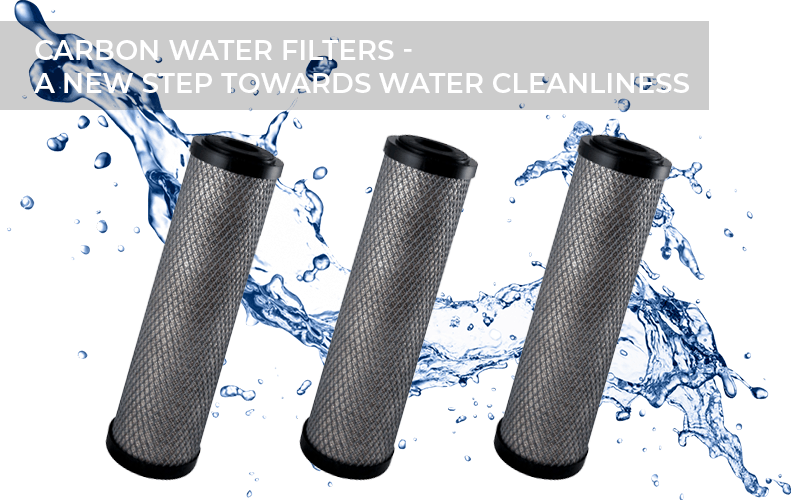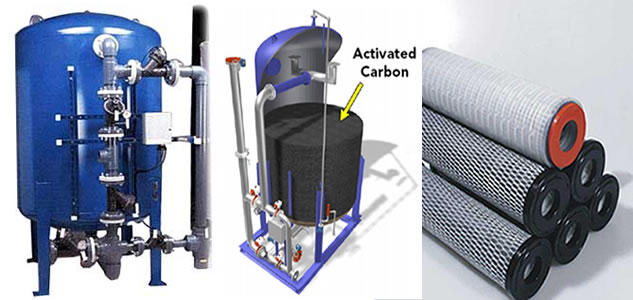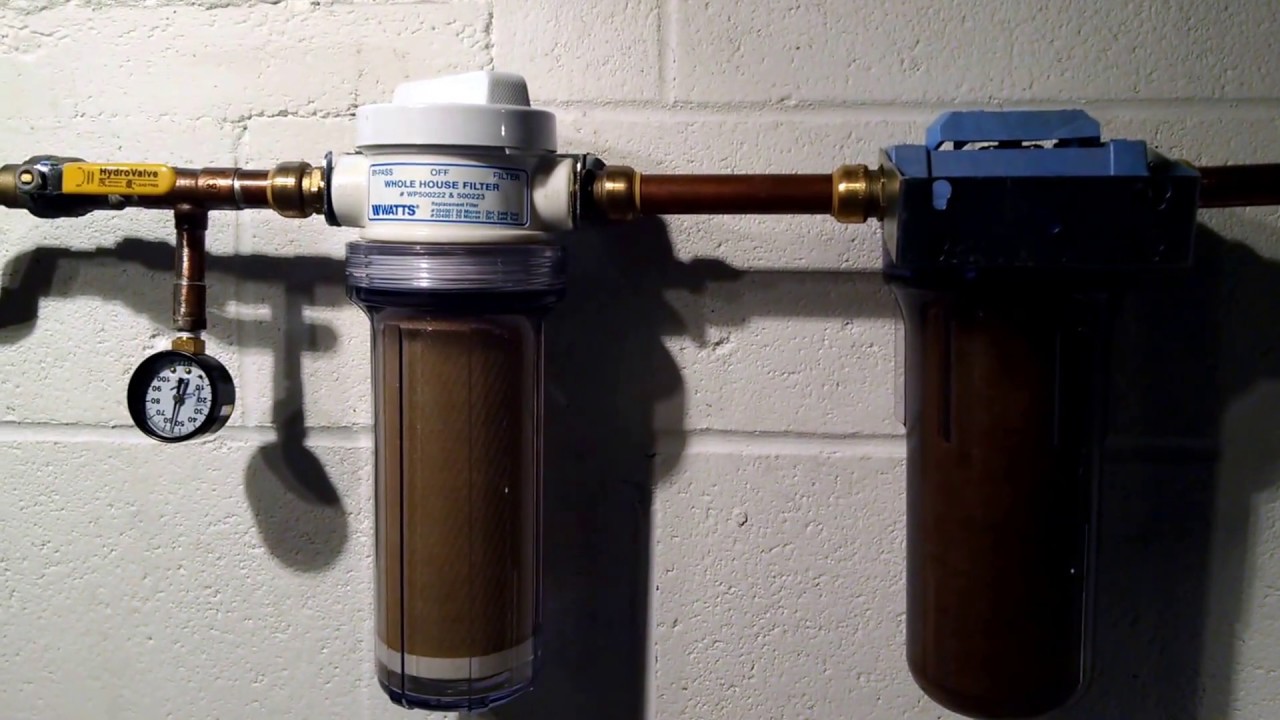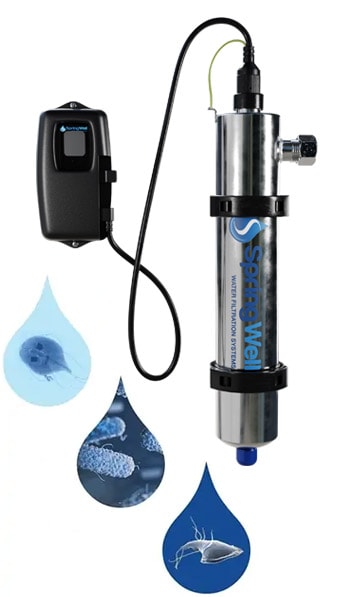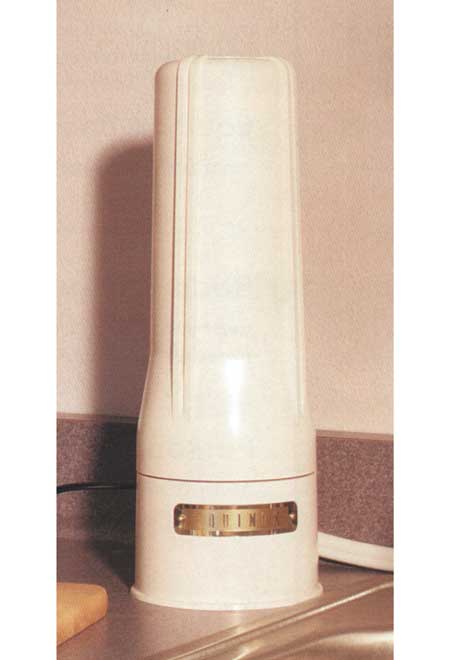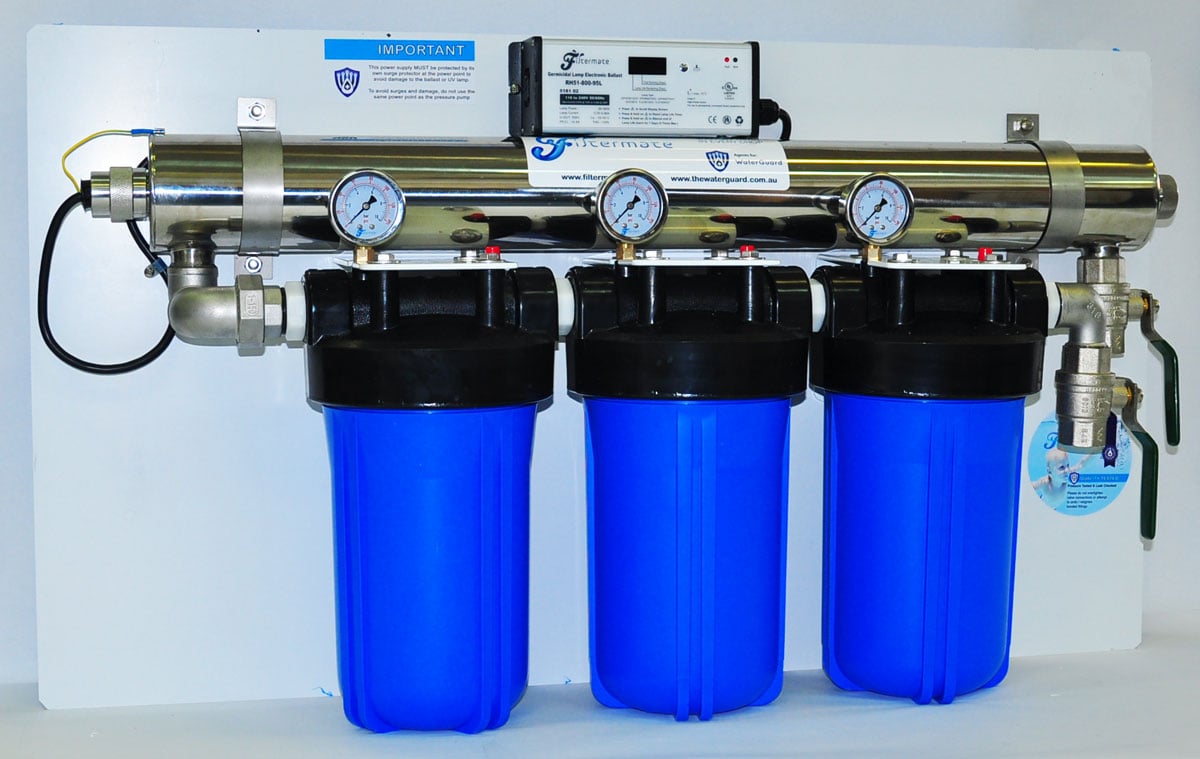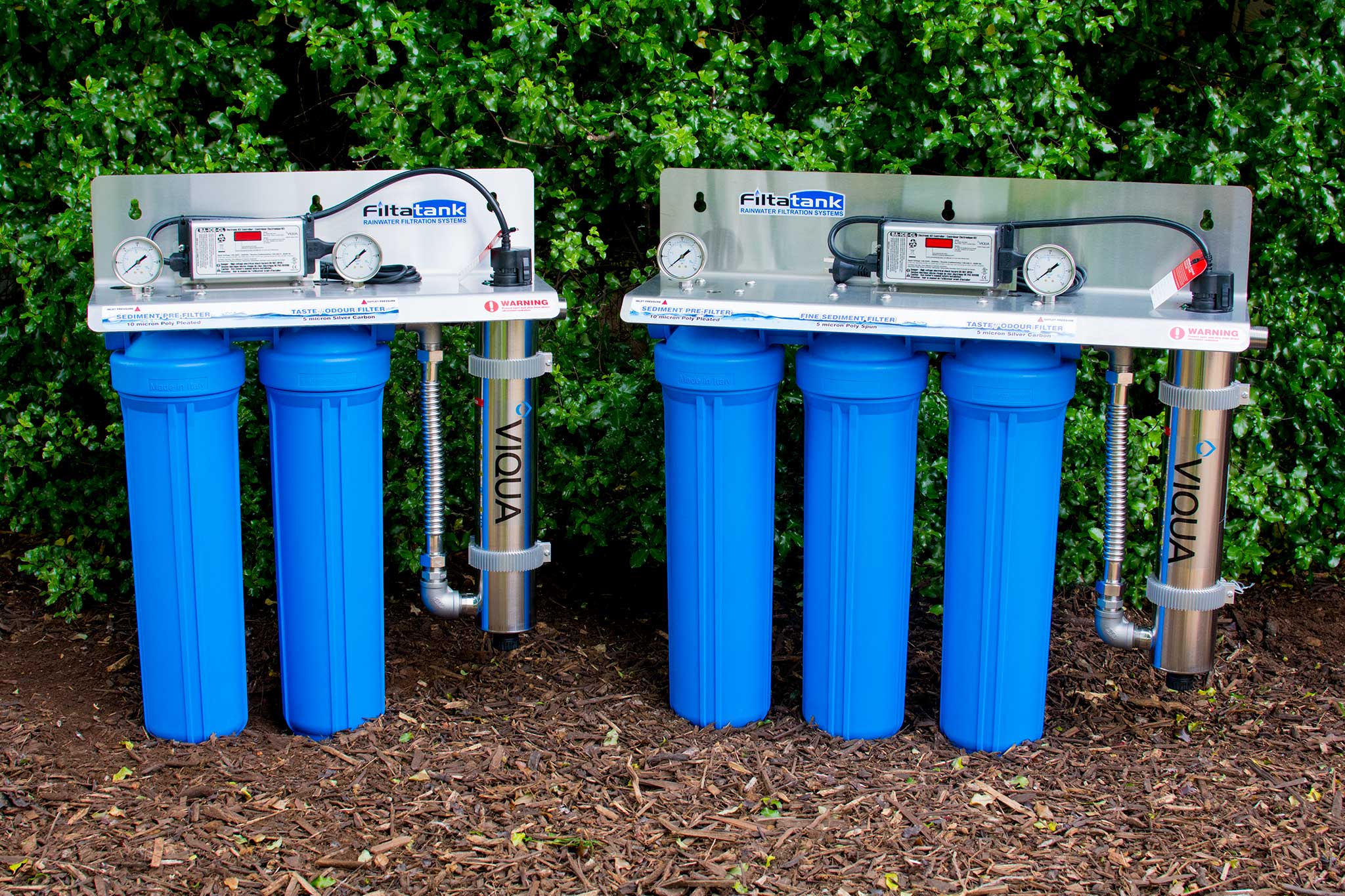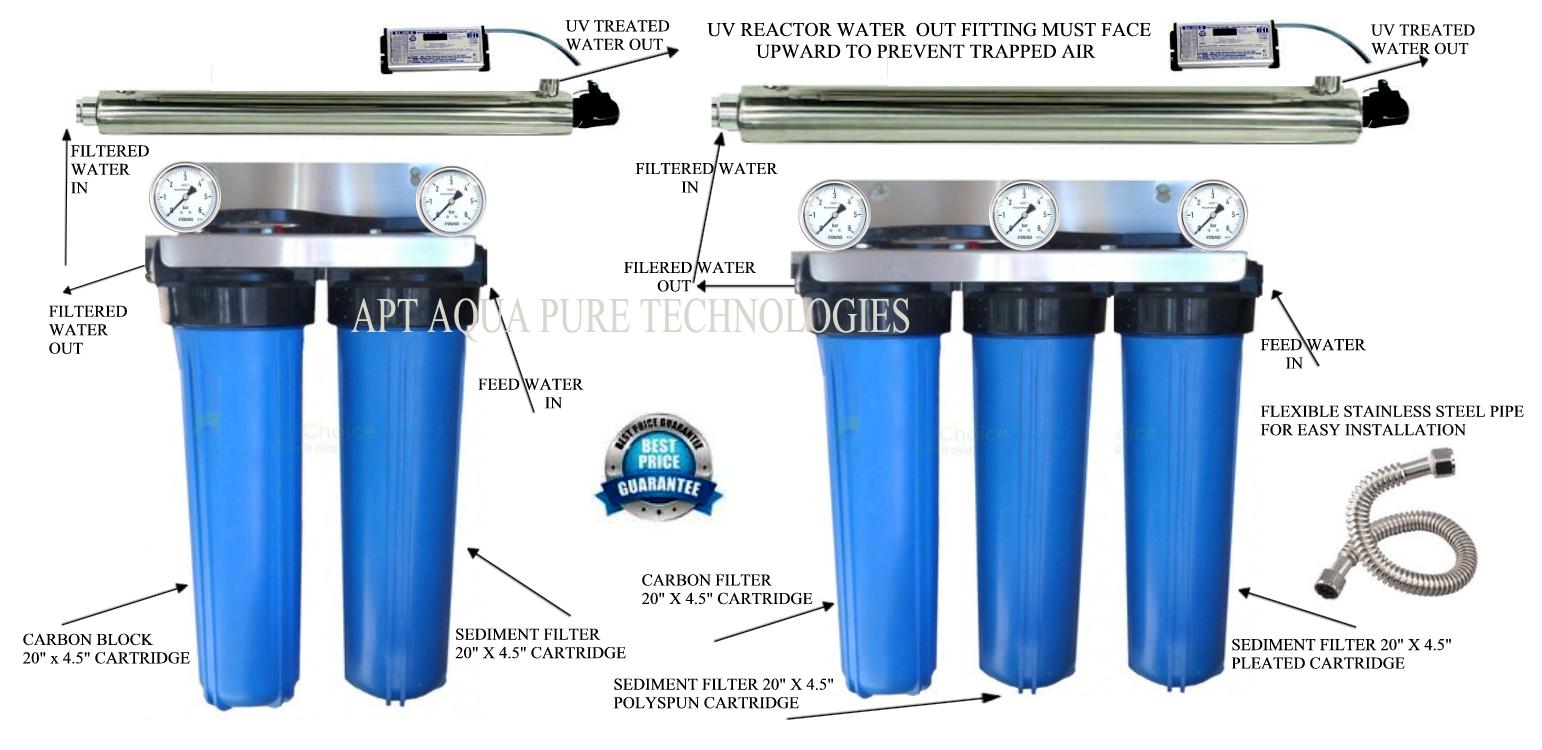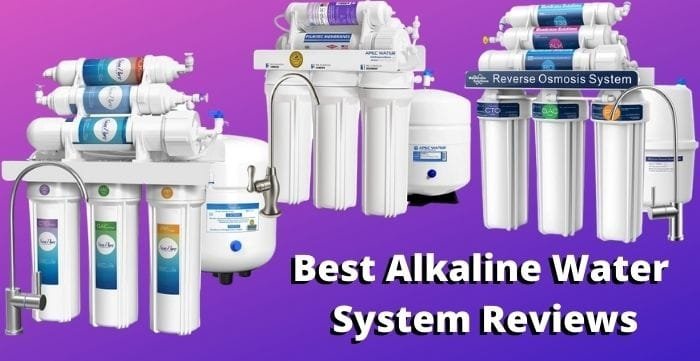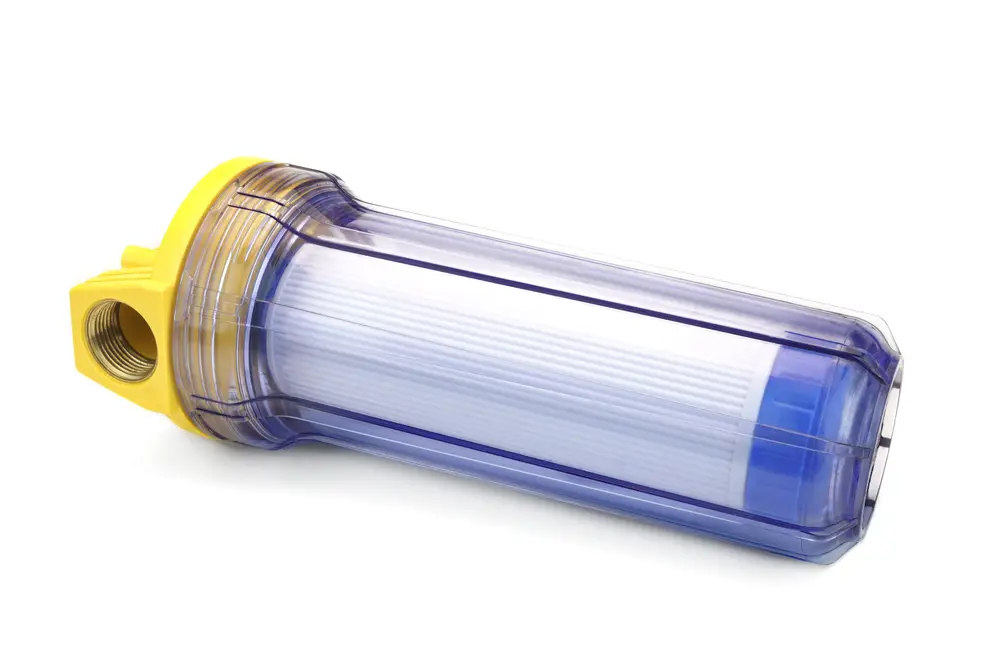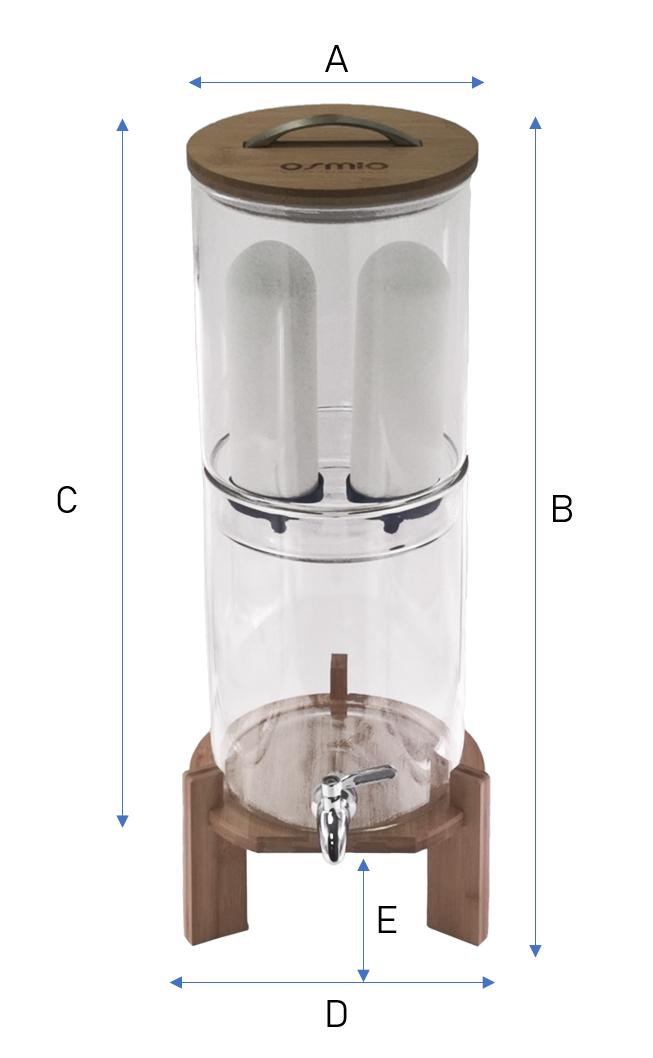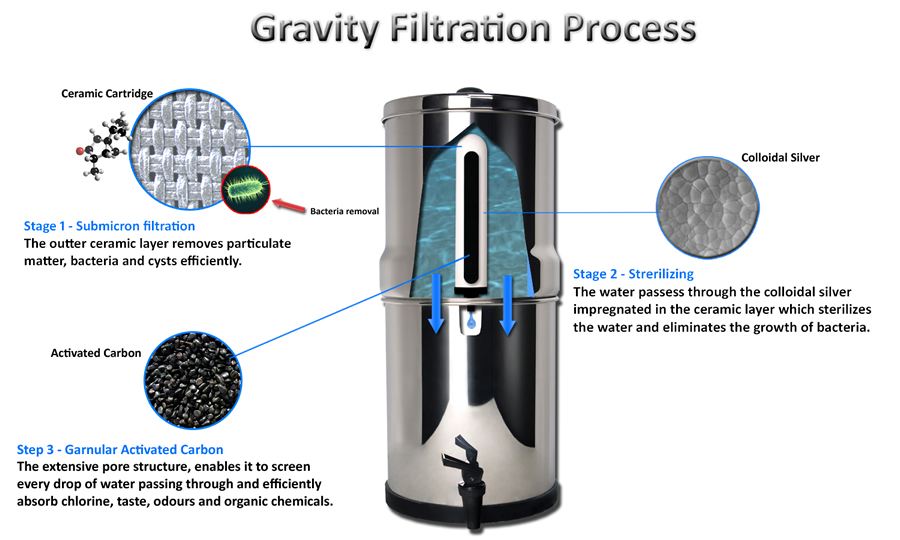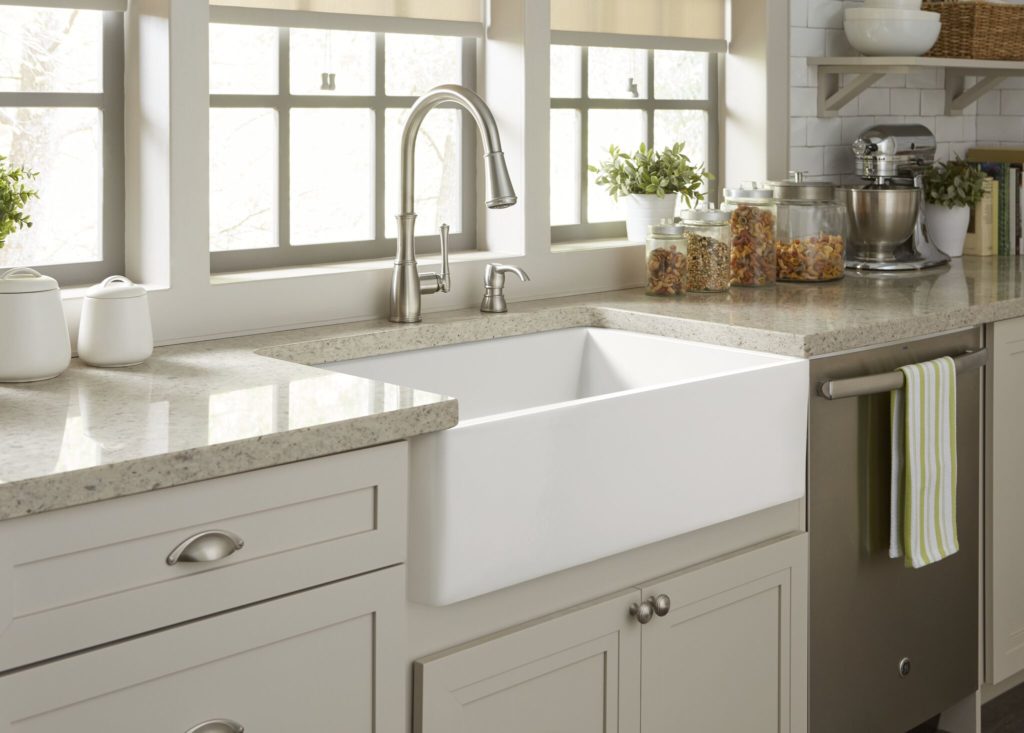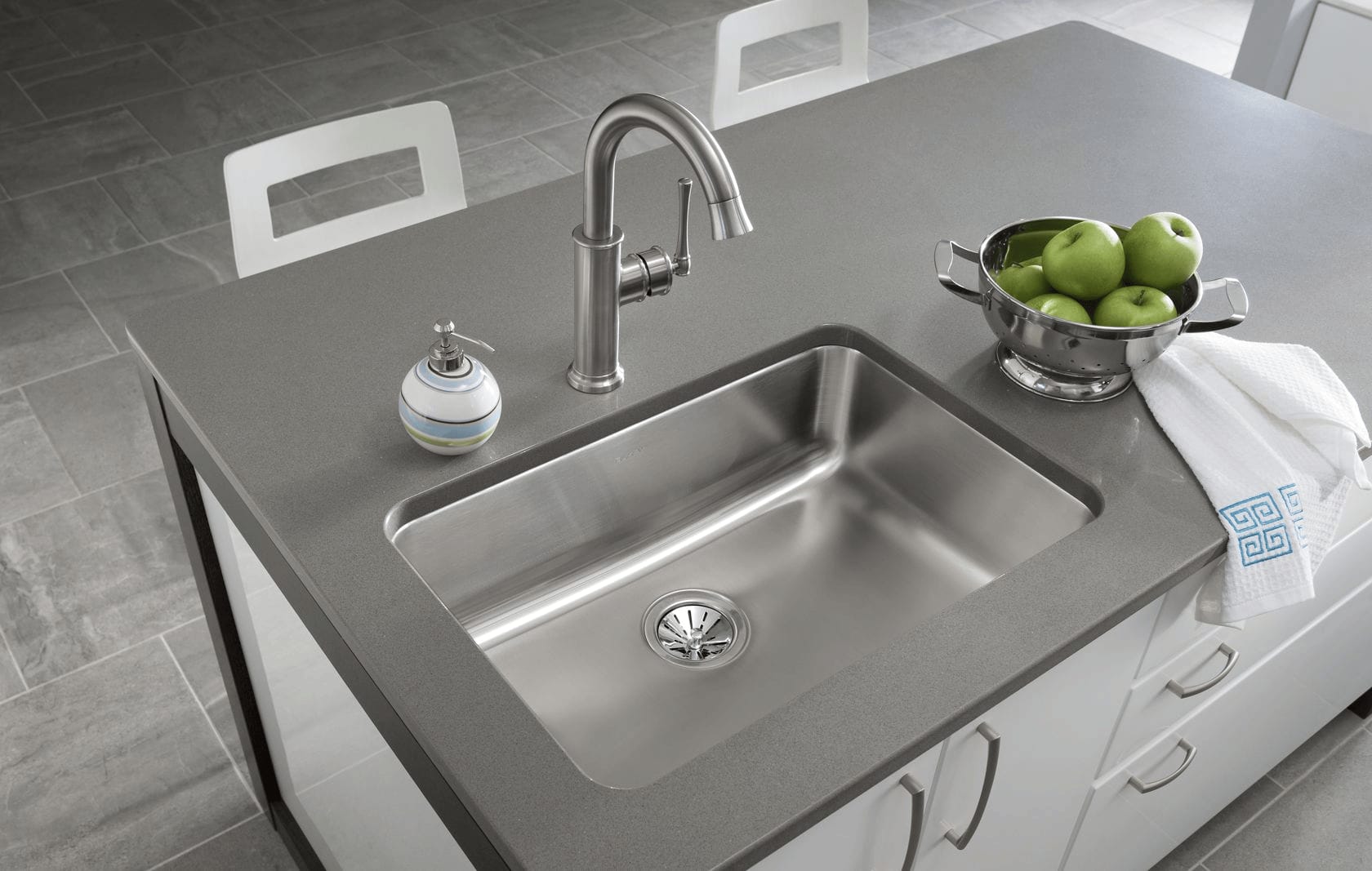1. Under Sink Water Filter System
An under sink water filter system is a popular choice for those looking to have clean and filtered water directly from their kitchen sink. This type of filtration system is installed under the sink and is connected to the main water supply, providing a continuous supply of filtered water for drinking and cooking purposes.
One of the main benefits of an under sink water filter system is its convenience. It does not take up any counter space and is hidden from view, making it a great option for smaller kitchens. It also does not require any additional drilling or installation of a separate faucet, as it can be connected to the existing kitchen faucet.
Most under sink water filter systems use a combination of carbon filters and reverse osmosis to remove impurities and contaminants from the water. This ensures that the water is not only free from harmful chemicals and bacteria, but also has a better taste and odor.
2. Countertop Water Filter System
A countertop water filter system is another popular choice for those looking for a simple and affordable way to filter their drinking water. As the name suggests, this type of filtration system is placed on the kitchen countertop and does not require any installation or plumbing.
Countertop water filter systems are usually equipped with carbon filters, which are effective in removing chlorine, lead, and other contaminants from the water. Some models also come with additional filters such as reverse osmosis or UV filters for an even more thorough purification process.
The main advantage of a countertop water filter system is its portability. It can easily be moved to different areas of the kitchen or even taken with you on trips, ensuring access to clean and safe drinking water wherever you go.
3. Reverse Osmosis Water Filter System
A reverse osmosis water filter system is considered to be one of the most effective types of filtration systems on the market. It uses a semipermeable membrane to remove impurities and contaminants from the water, resulting in a high-quality and pure drinking water.
This type of filtration system is usually installed under the sink and can also be used for the entire household if a whole house reverse osmosis system is installed. It removes a wide range of contaminants, including fluoride, arsenic, lead, and chlorine, making it a popular choice for those living in areas with poor water quality.
However, one downside of a reverse osmosis system is that it also removes beneficial minerals from the water, which may need to be added back in through a remineralization filter.
4. Faucet Water Filter System
A faucet water filter system is a convenient and affordable option for those looking to filter their drinking water without any complex installation or additional devices. This type of filtration system is attached directly to the kitchen faucet and filters the water as it flows through the tap.
Faucet water filter systems are usually equipped with carbon filters and are effective in removing chlorine, sediment, and other impurities from the water. Some models also come with additional filters such as alkaline or UV filters for added benefits.
The main advantage of a faucet water filter system is its ease of use. It can easily be attached and detached from the faucet, making it a great option for those who are renting or do not want to make any permanent changes to their kitchen.
5. Whole House Water Filtration System
A whole house water filtration system is a comprehensive solution for those looking to have clean and filtered water throughout their entire home. This type of system is usually installed at the main water supply line, ensuring that all the water used in the household is filtered.
A whole house water filtration system is usually equipped with multiple filters, including carbon filters, reverse osmosis, and UV filters, to remove a wide range of contaminants and impurities from the water. It not only provides clean drinking water, but also improves the quality of water used for showering, cooking, and other household tasks.
However, a whole house water filtration system can be more expensive and may require professional installation. It also needs regular maintenance and filter replacements to ensure its effectiveness.
6. Carbon Water Filter System
A carbon water filter system is a popular choice for those looking for a simple and effective way to filter their drinking water. This type of filtration system uses activated carbon to remove impurities and contaminants from the water.
Activated carbon has a large surface area, which allows it to trap and absorb a wide range of pollutants, including chlorine, pesticides, and volatile organic compounds (VOCs). It also helps improve the taste and odor of the water.
A carbon water filter system is usually used in combination with other filtration methods, such as reverse osmosis or UV filters, for a more thorough purification process.
7. UV Water Filter System
A UV water filter system uses ultraviolet light to kill bacteria and other harmful microorganisms in the water. This type of filtration system is usually used in combination with other filters, such as carbon or reverse osmosis, to provide a comprehensive purification process.
The UV light in the filtration system disrupts the DNA of bacteria and other pathogens, rendering them unable to reproduce and cause harm. It is an effective method for removing viruses, protozoa, and other microorganisms that may be present in the water.
One of the main advantages of a UV water filter system is that it does not use any chemicals or produce any waste, making it an environmentally-friendly option. However, it may not be effective in removing other contaminants such as heavy metals or chemicals.
8. Alkaline Water Filter System
An alkaline water filter system is designed to increase the pH level of the water, making it more alkaline. This type of filtration system is usually used in combination with other filters, such as carbon or reverse osmosis, for a more thorough purification process.
Proponents of alkaline water claim that it has numerous health benefits, including improved hydration, better digestion, and increased energy levels. However, there is limited scientific evidence to support these claims.
One potential drawback of an alkaline water filter system is that it may not be suitable for those with certain health conditions, such as acid reflux or kidney disease.
9. Portable Water Filter System
A portable water filter system is a convenient option for those who are always on-the-go and want access to clean and safe drinking water. This type of filtration system is usually compact and can easily fit in a backpack or travel bag.
Portable water filter systems come in various forms, such as water bottles, straws, and pouches, and use different methods of filtration, such as carbon or UV filters. They are effective in removing contaminants and impurities from water sources, such as streams, lakes, and tap water, making it safe to drink.
One important thing to note is that portable water filter systems may have limited capacity and may need to be replaced or refilled regularly, especially when used in areas with poor water quality.
10. Gravity Water Filter System
A gravity water filter system is a simple and affordable option for those looking to filter larger quantities of water without the need for electricity or any complex installation. This type of filtration system uses the force of gravity to filter the water and does not require any plumbing or connection to a water source.
Gravity water filter systems usually use carbon filters and are effective in removing impurities and contaminants from the water. They are also ideal for emergency situations or outdoor activities, such as camping or hiking.
One potential drawback of a gravity water filter system is that it may have a slower flow rate compared to other filtration methods, making it less suitable for those who need a quick supply of filtered water.
Why a Kitchen Sink Filtration System is Essential for Your Home

The Importance of Clean and Safe Drinking Water
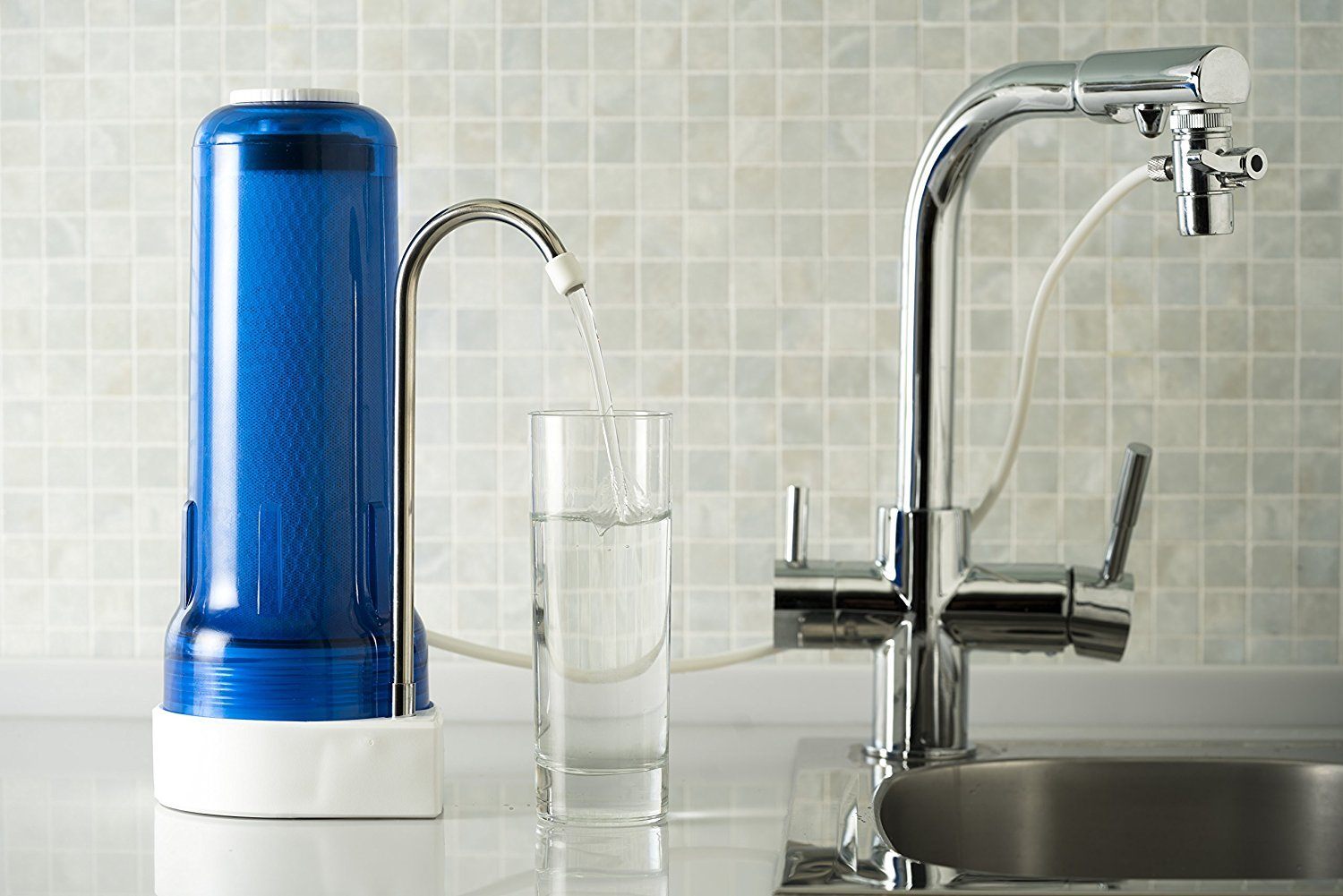 Clean and safe drinking water is a basic necessity for every household. However, many households rely on tap water which may contain harmful contaminants such as lead, chlorine, and bacteria. These contaminants not only affect the taste and odor of water but can also pose serious health risks. This is where a
kitchen sink filtration system
comes in.
Clean and safe drinking water is a basic necessity for every household. However, many households rely on tap water which may contain harmful contaminants such as lead, chlorine, and bacteria. These contaminants not only affect the taste and odor of water but can also pose serious health risks. This is where a
kitchen sink filtration system
comes in.
How a Kitchen Sink Filtration System Works
 A
kitchen sink filtration system
is a compact and convenient way to ensure that the water you use for cooking and drinking is clean and safe. It is installed directly under your kitchen sink and works by filtering out impurities and contaminants from your tap water. This is done through a multi-stage filtration process, which may include a combination of activated carbon, reverse osmosis, and UV light technology.
A
kitchen sink filtration system
is a compact and convenient way to ensure that the water you use for cooking and drinking is clean and safe. It is installed directly under your kitchen sink and works by filtering out impurities and contaminants from your tap water. This is done through a multi-stage filtration process, which may include a combination of activated carbon, reverse osmosis, and UV light technology.
The Benefits of a Kitchen Sink Filtration System
/best-reverse-osmosis-systems-4586893-jay-wilde-b88c627b82da4a93827ca422b1ad9b8e.jpg) Investing in a
kitchen sink filtration system
offers numerous benefits for your household. Firstly, it provides you with clean and safe drinking water, free from harmful contaminants, chemicals, and bacteria. This not only improves the taste and odor of your water but also helps protect your family's health. Additionally, having a filtration system at your kitchen sink eliminates the need for buying bottled water, saving you money and reducing plastic waste.
Investing in a
kitchen sink filtration system
offers numerous benefits for your household. Firstly, it provides you with clean and safe drinking water, free from harmful contaminants, chemicals, and bacteria. This not only improves the taste and odor of your water but also helps protect your family's health. Additionally, having a filtration system at your kitchen sink eliminates the need for buying bottled water, saving you money and reducing plastic waste.
Improved House Design and Convenience
 Aside from the health and financial benefits, a
kitchen sink filtration system
also adds to the overall design and convenience of your home. Unlike bulky countertop water filters, this system is installed out of sight, under your kitchen sink, freeing up counter space and maintaining a clean and clutter-free look. It also eliminates the need for constantly refilling a pitcher or attaching a filter to your faucet, making it a hassle-free solution for clean drinking water.
In conclusion, a
kitchen sink filtration system
is an essential addition to your home, ensuring clean and safe drinking water for you and your family. It not only offers health benefits but also improves the overall design and convenience of your household. With its compact size, multi-stage filtration process, and cost-saving features, it is a worthwhile investment for any household.
Aside from the health and financial benefits, a
kitchen sink filtration system
also adds to the overall design and convenience of your home. Unlike bulky countertop water filters, this system is installed out of sight, under your kitchen sink, freeing up counter space and maintaining a clean and clutter-free look. It also eliminates the need for constantly refilling a pitcher or attaching a filter to your faucet, making it a hassle-free solution for clean drinking water.
In conclusion, a
kitchen sink filtration system
is an essential addition to your home, ensuring clean and safe drinking water for you and your family. It not only offers health benefits but also improves the overall design and convenience of your household. With its compact size, multi-stage filtration process, and cost-saving features, it is a worthwhile investment for any household.






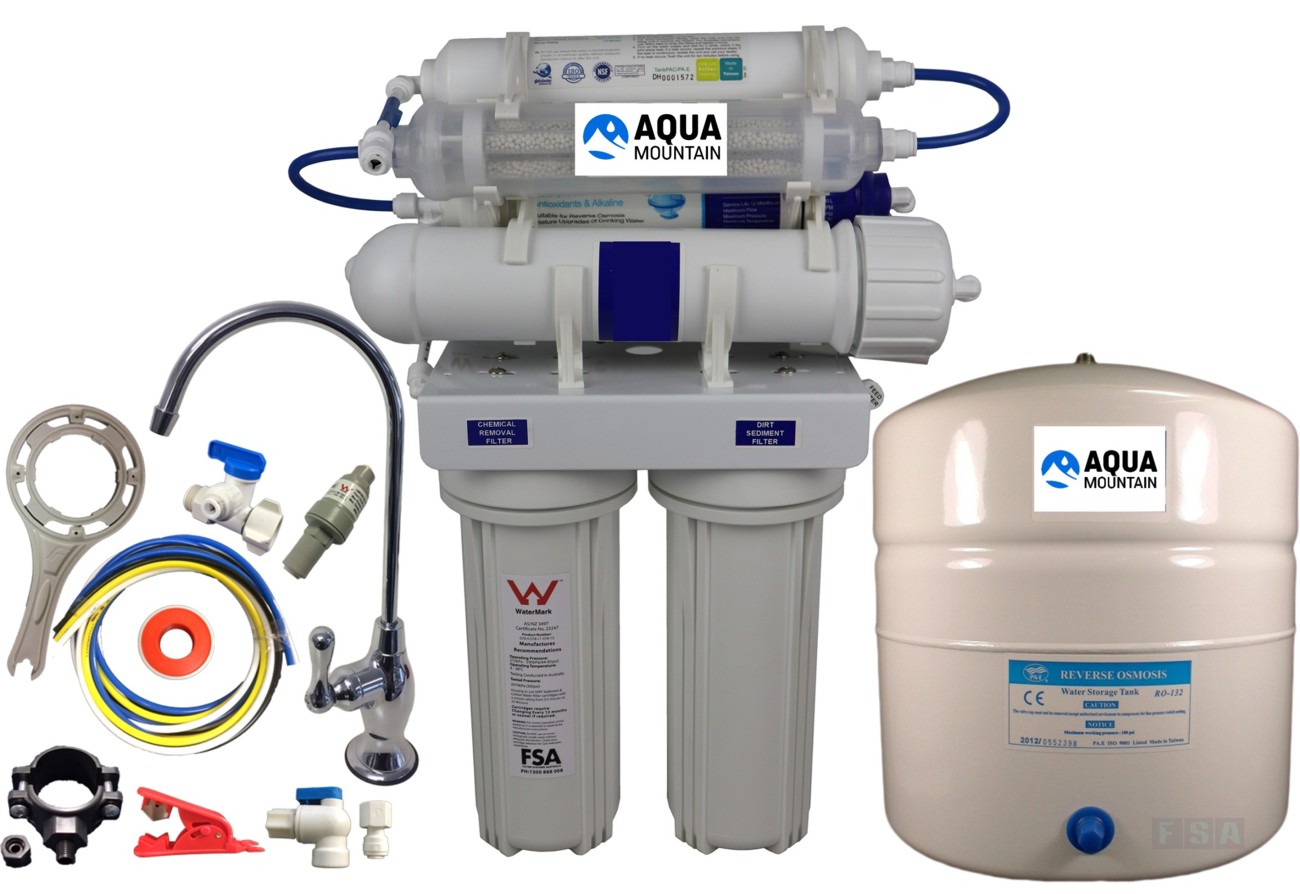

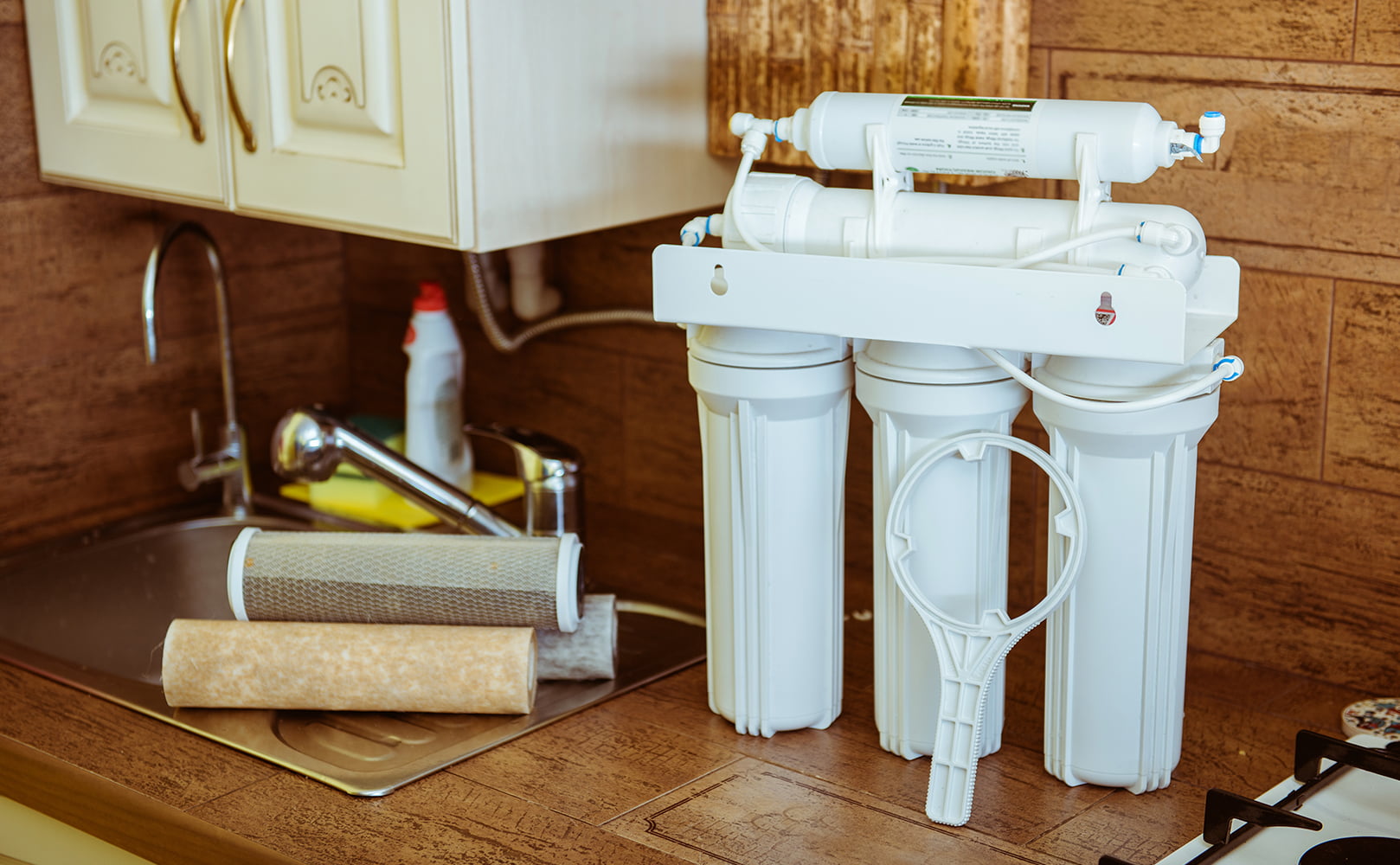


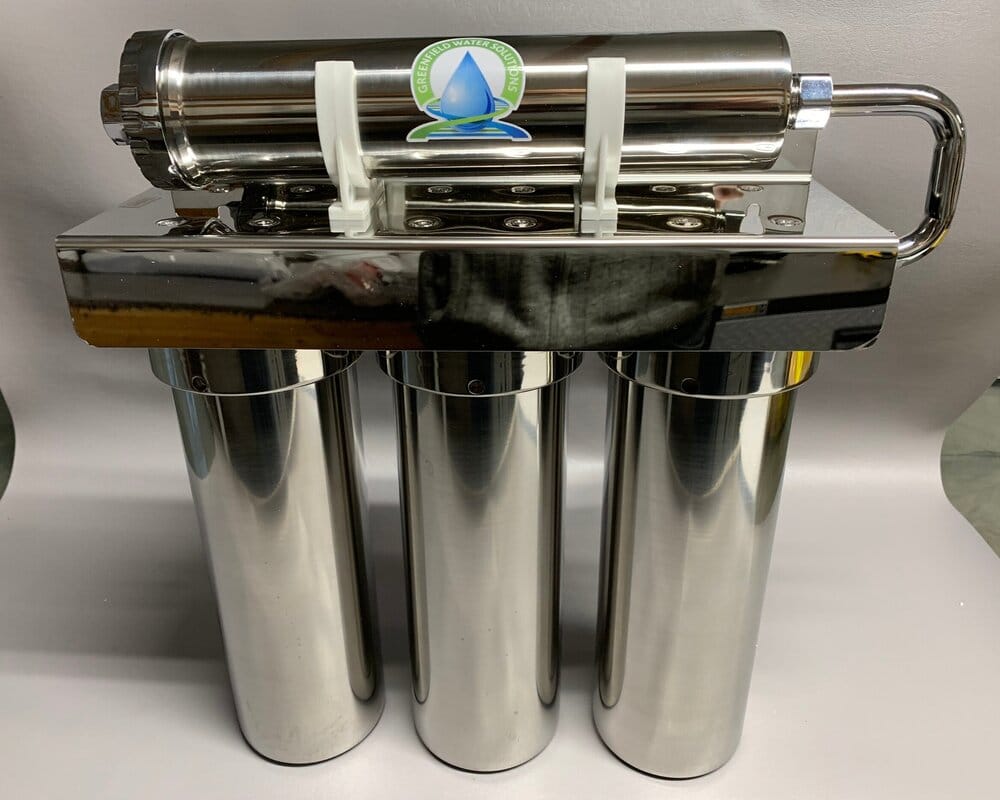

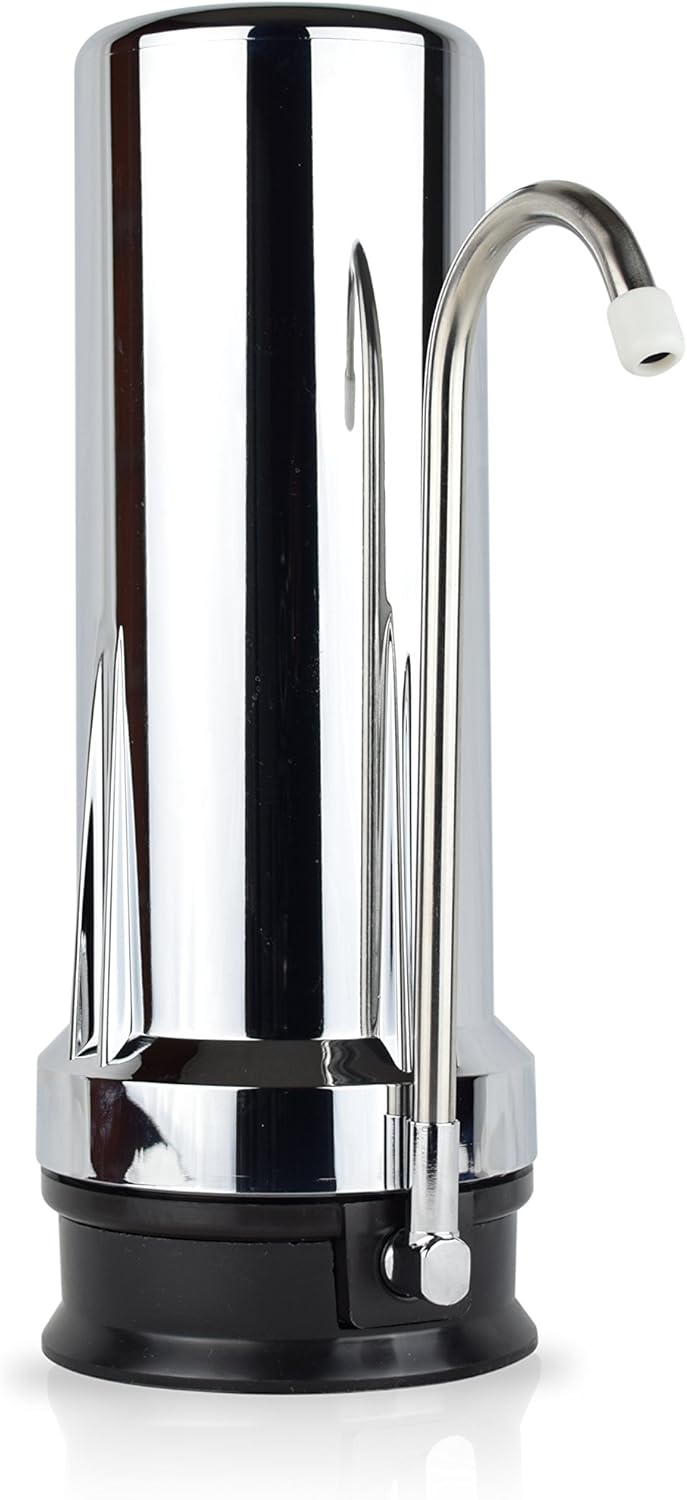

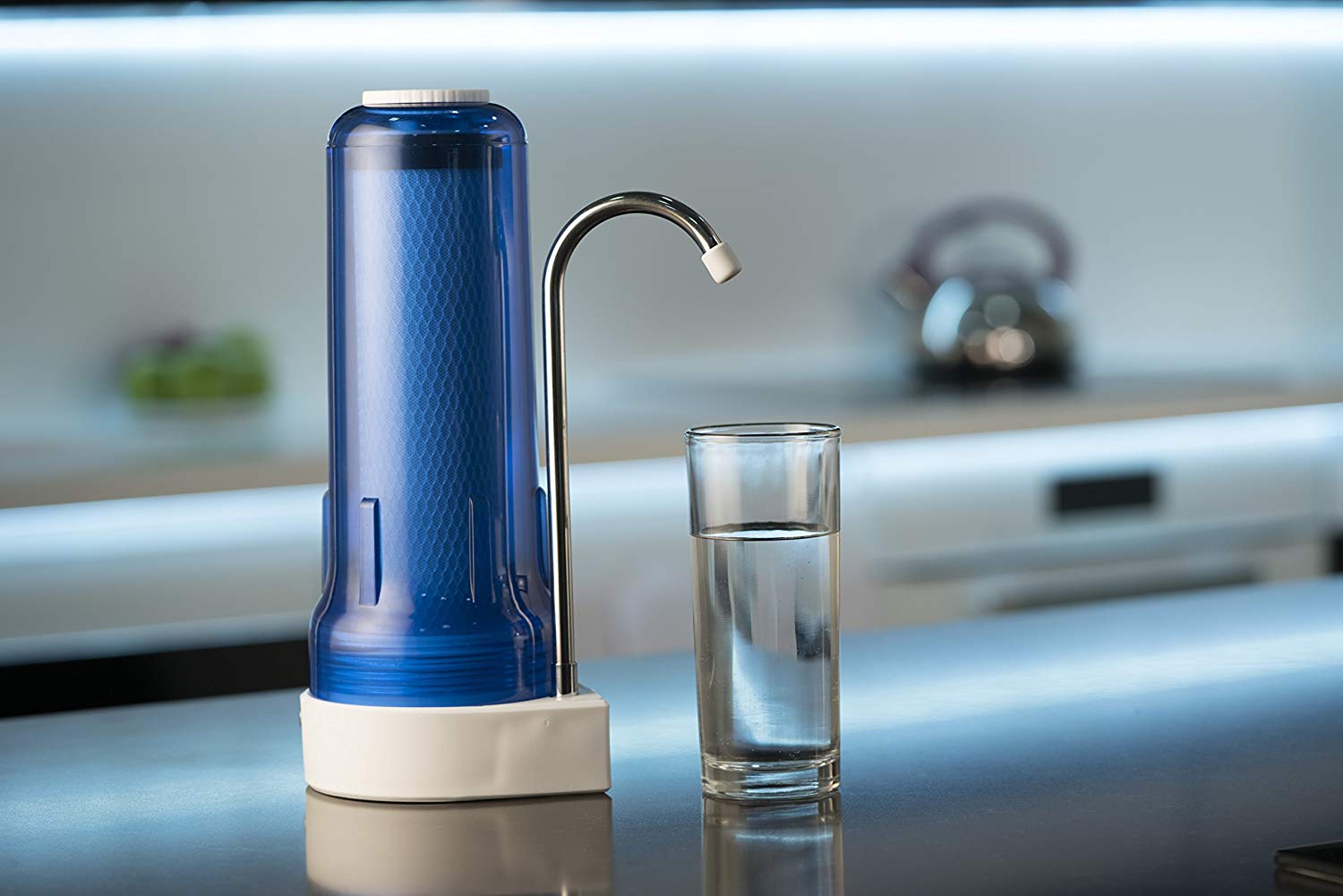



/waterpurifieronsink-1135949a27e64e6c85452a207e3d5dce.jpg)

